11-19 Jul 2024
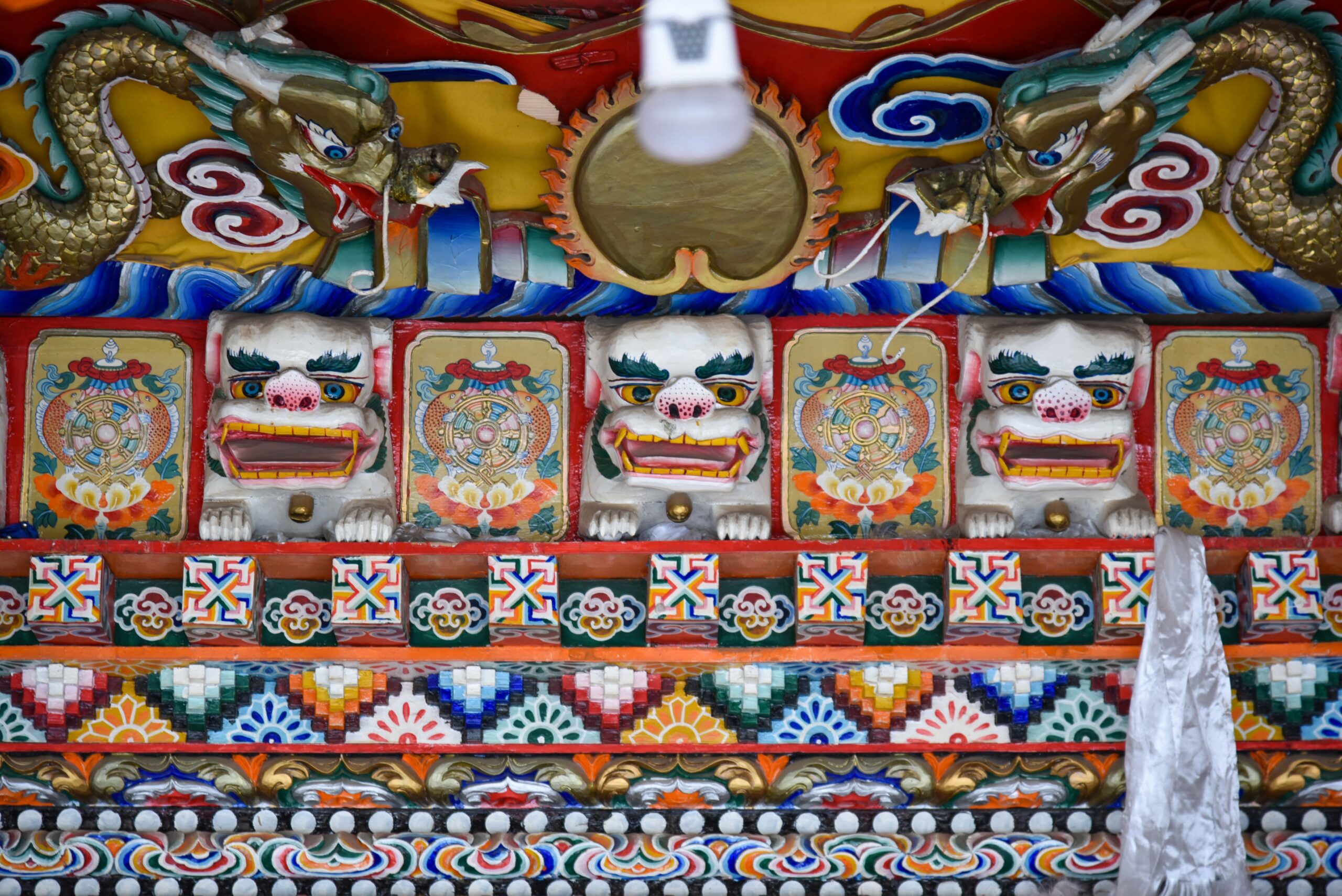
We met Zhuoma (卓瑪) again to behold an important occasion in her mother’s village – the division of its grassland. On the official record, the land was already divided among its 32 families over 20 years ago. But they share the land and herd livestock together until now. Zhuoma appointed a surveying company to ensure accurate division and we joined their day of marking the boundary of each smaller pasture.
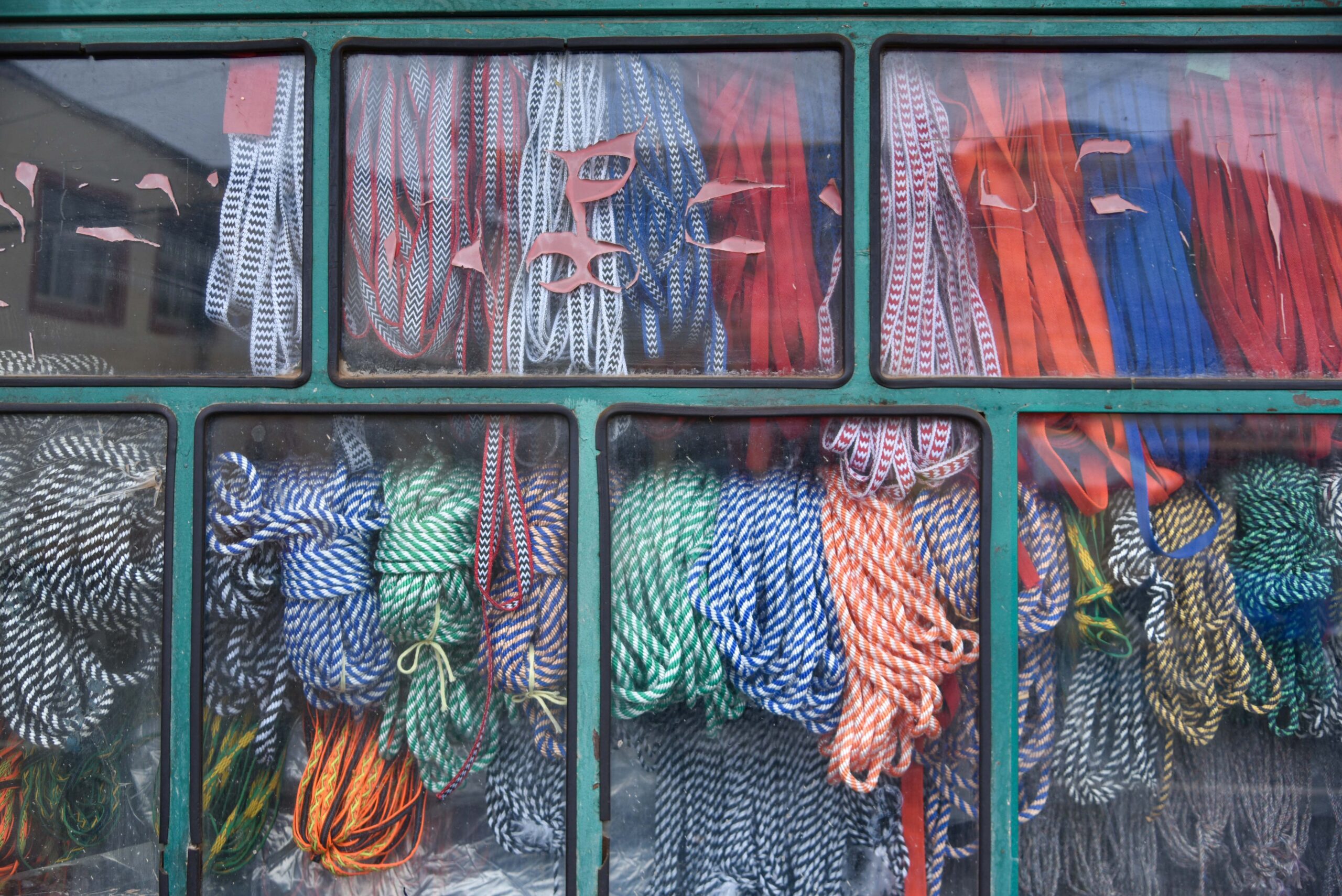
Zhuoma told us to meet her by the entrance to the grassland which was the exact spot where Kin burst a tyre a few days ago. I had an ominous feeling about it. We arrived just before 8:30am and waited for 20 minutes. As there was no news from Zhuoma, Kin decided to drive into the grassland by himself. It was very muddy and wet at the entrance gate. As soon as Kin drove onto the mud, our van skidded and within seconds, we were stuck and couldn’t move.
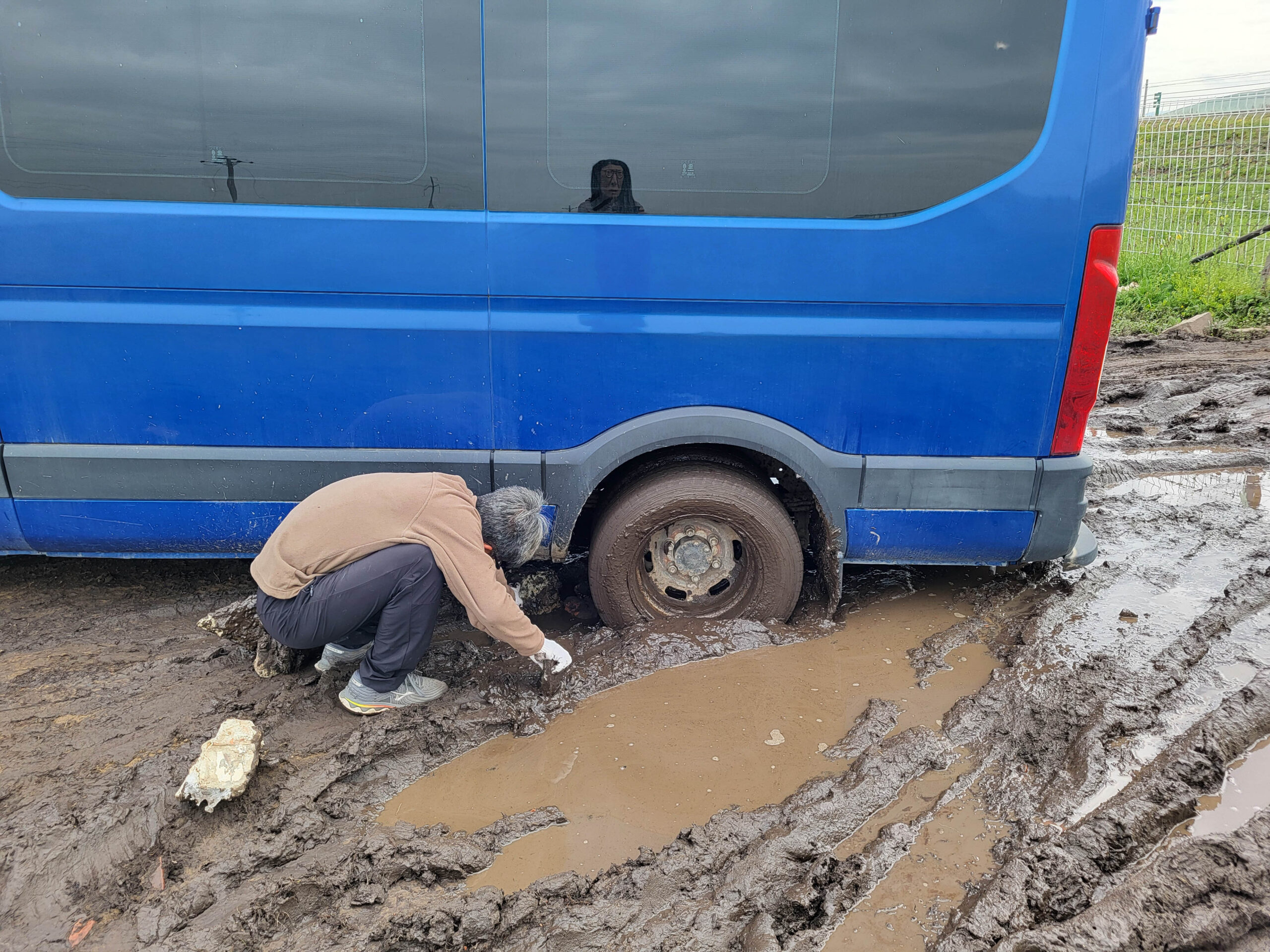
My immediate thought was: “Man! Not again! And stuck in the exact same spot! Gosh! How stupid is this?” Kin tried to stack stones underneath the wheels but his pathetic effort was futile. After 10 minutes and mud all over himself, it was obvious that we couldn’t extricate ourselves from this mess. We texted Zhuoma and she called for help. Three men appeared on motorbikes very soon. After assessing the rather comical scene, they asked Kin to reverse and they pushed. I kept an eye to make sure Kin wouldn’t crash into the gate. When our van was out of the woods, they asked Kin to drive faster and in one go to get enough momentum to go over the pool of mud. The whole thing was resolved within minutes. It just goes to show how useless we urban people are in the face of nature.
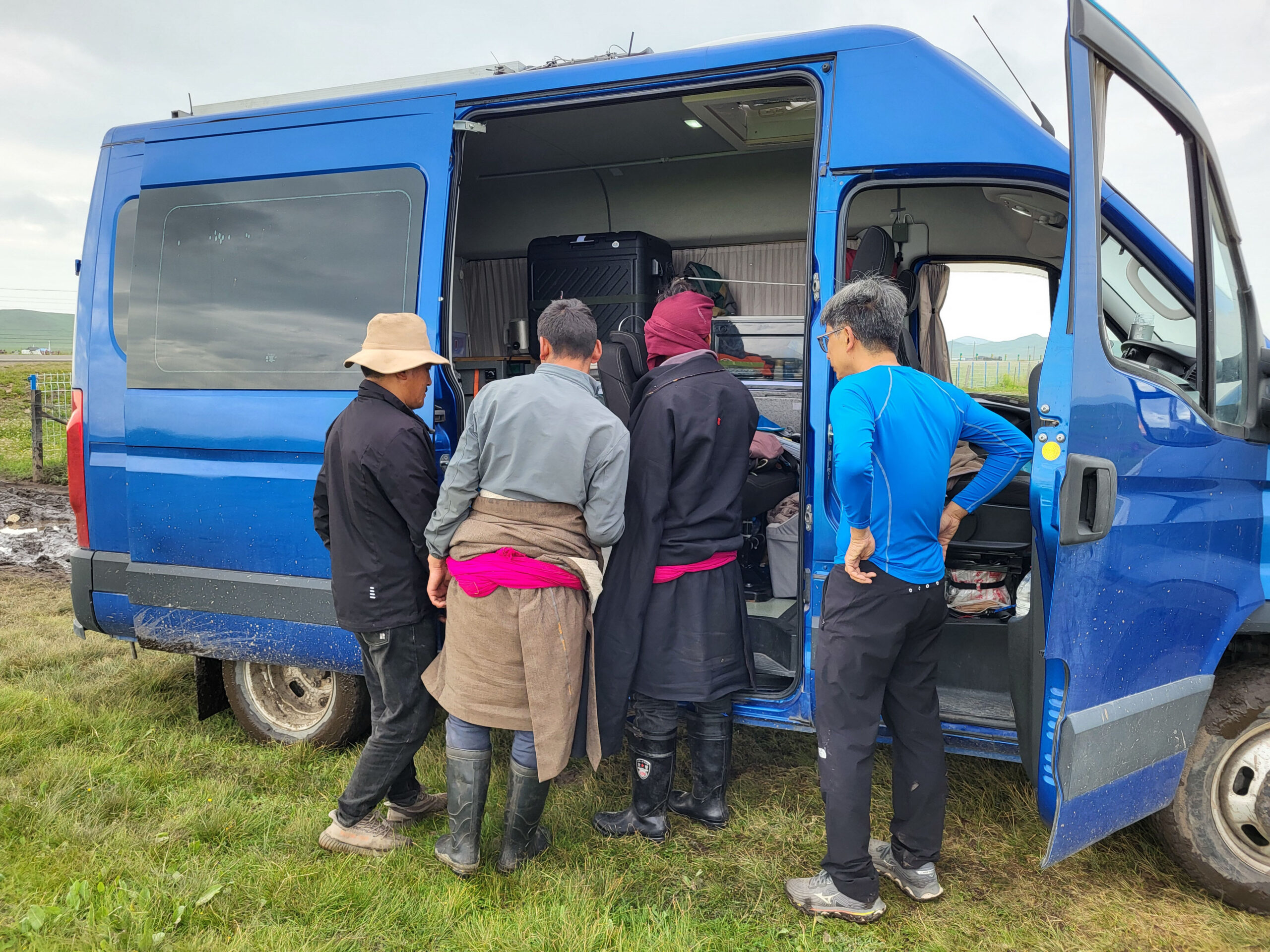
Zhuoma arrived and we drove to a tent which was set up for the day’s work. We met more men inside and had tea and yak meat together. Then we gathered the tools and paint to commence the momentous work of dividing the land by setting up poles (to be used later for fencing up) as the boundary of each pasture. I captured moments of putting up the first pole and signing of documents while Kin helped with the digging and carrying tools.
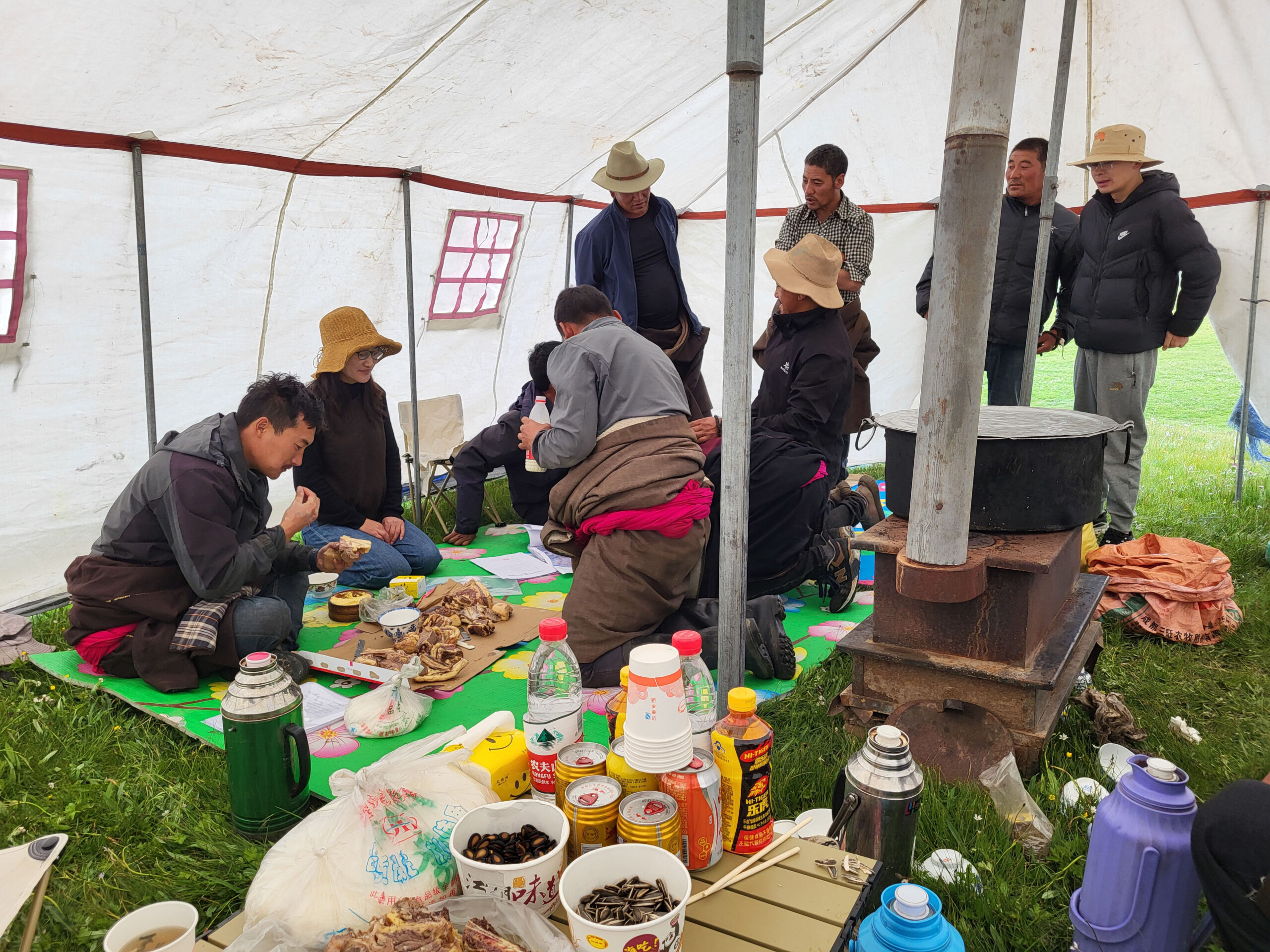
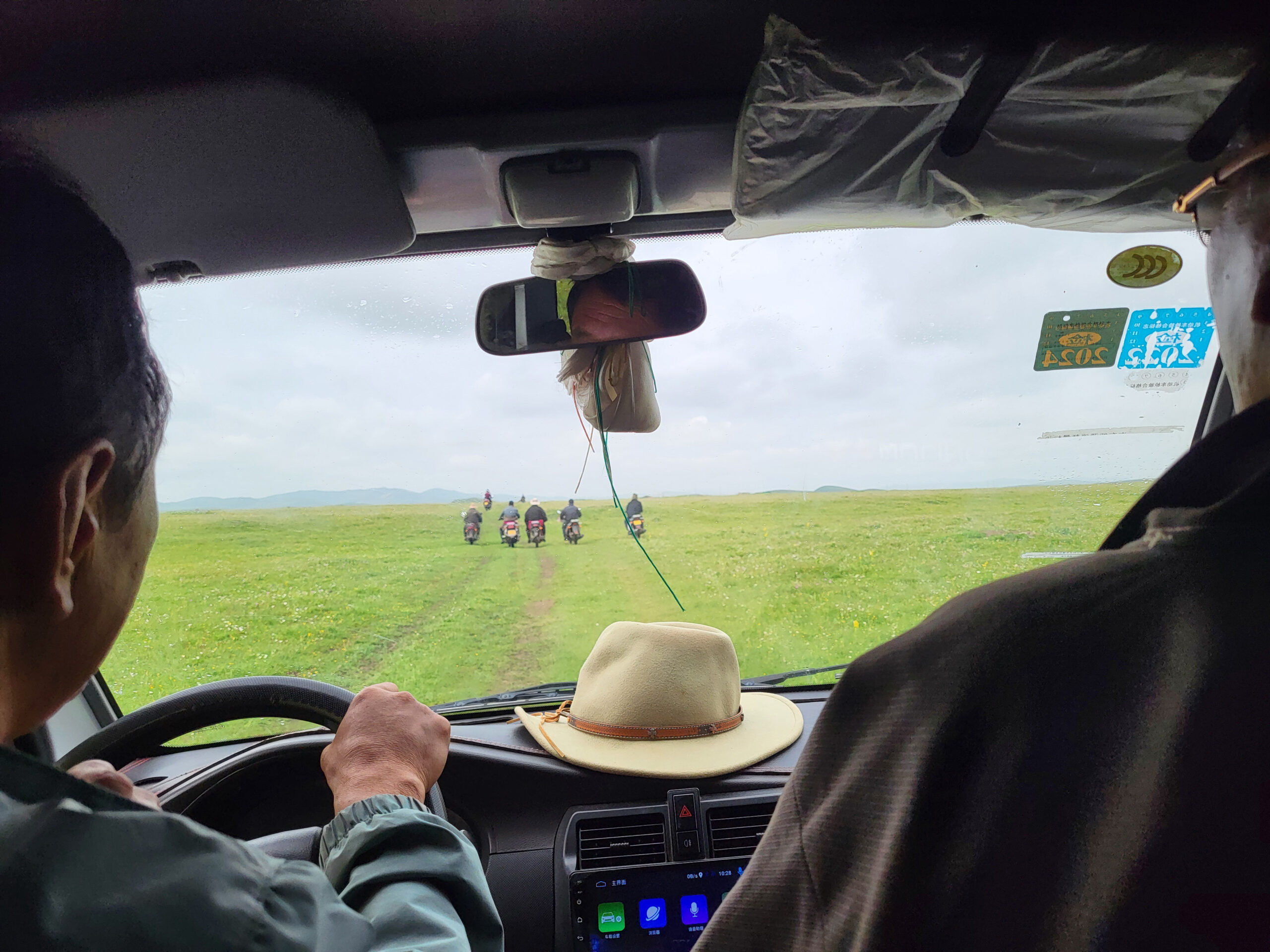
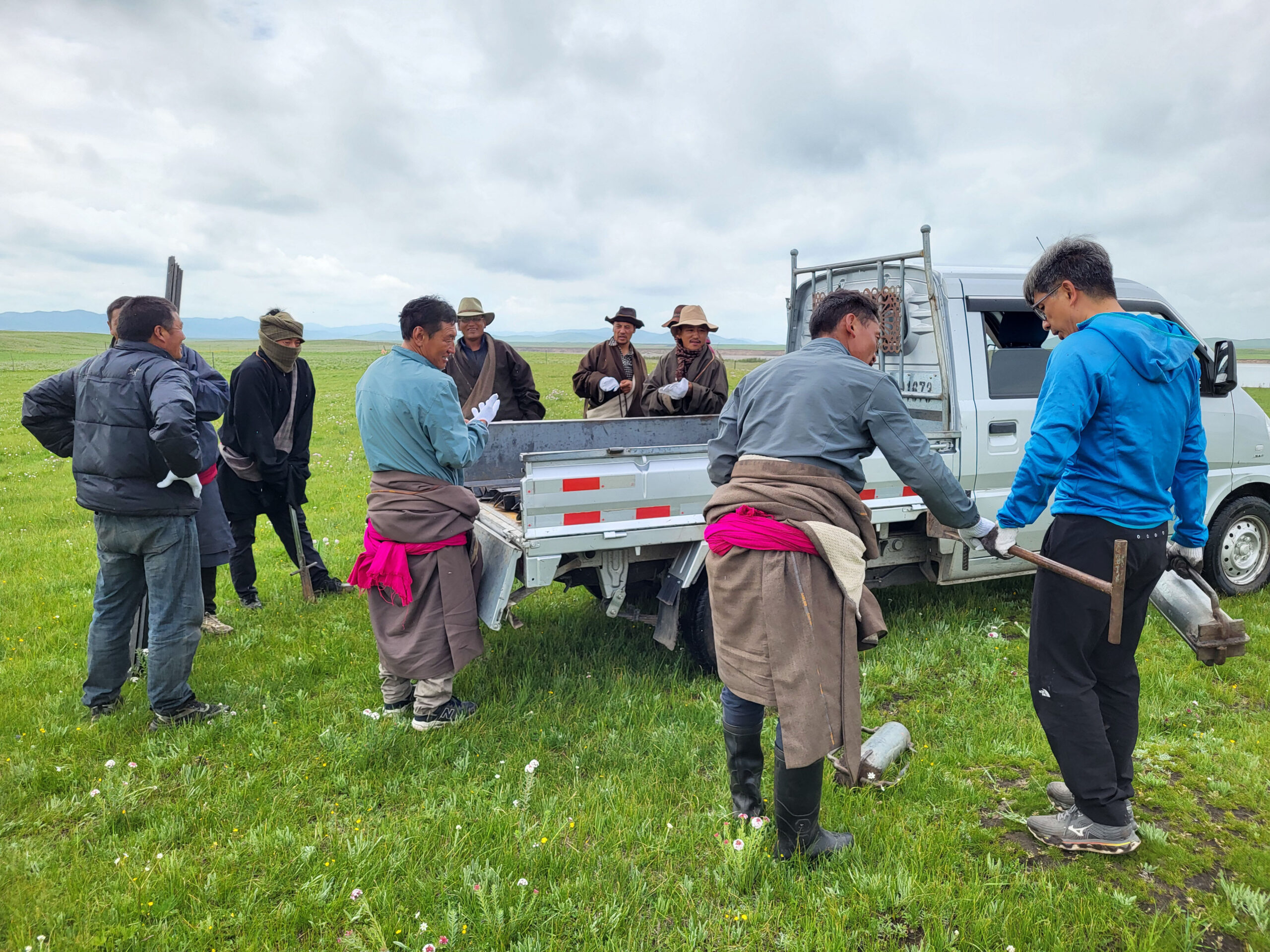
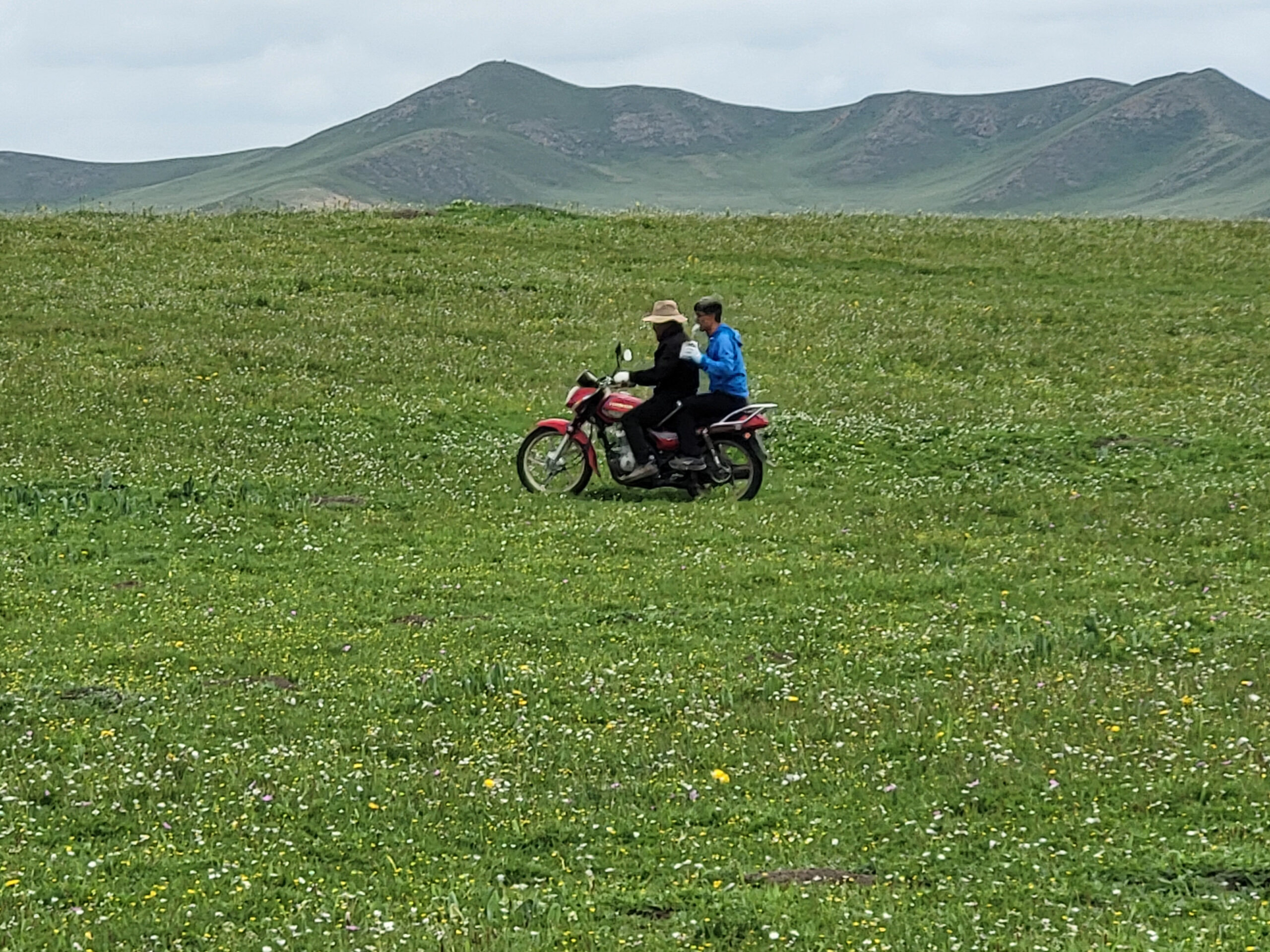
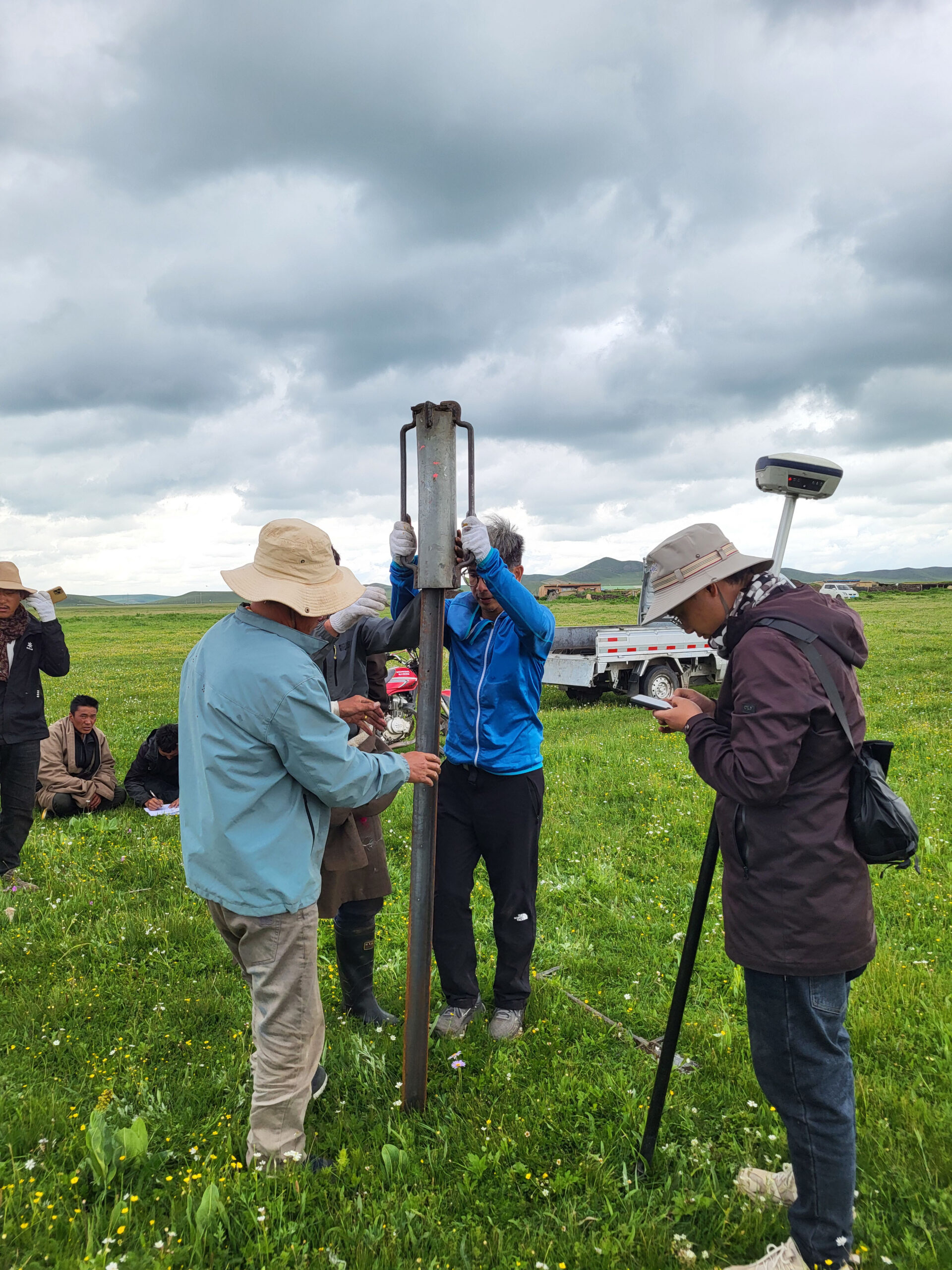
There is a very strong sense of community in the grassland and everyone help each other. The men took turns to dig and put up poles. We were out in the field for about two hours before returning to the tent for lunch. They were very attentive, someone brought us tea and food as we went in, just when we were about to finish, someone else would serve us more tea or noodles immediately.
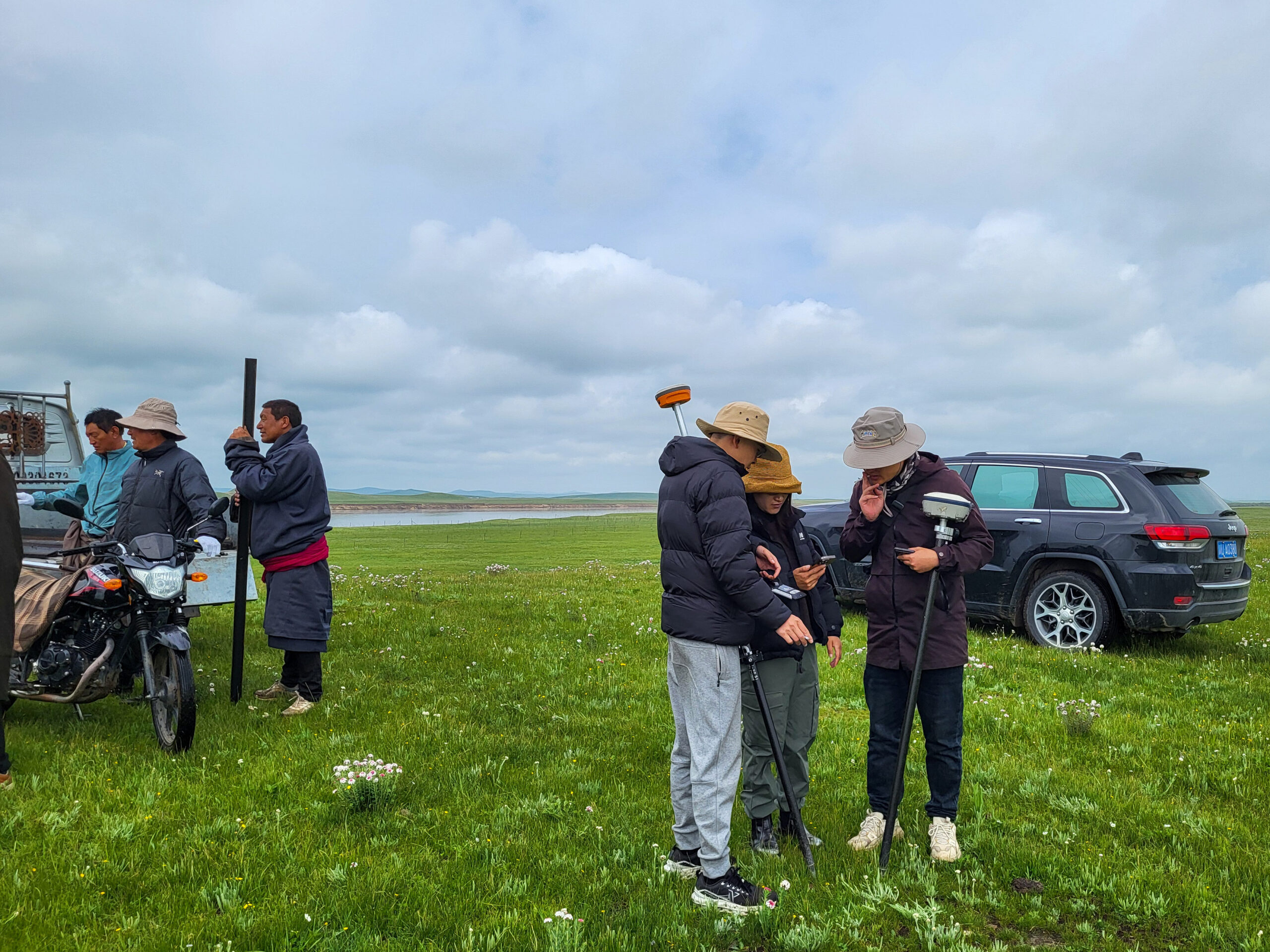
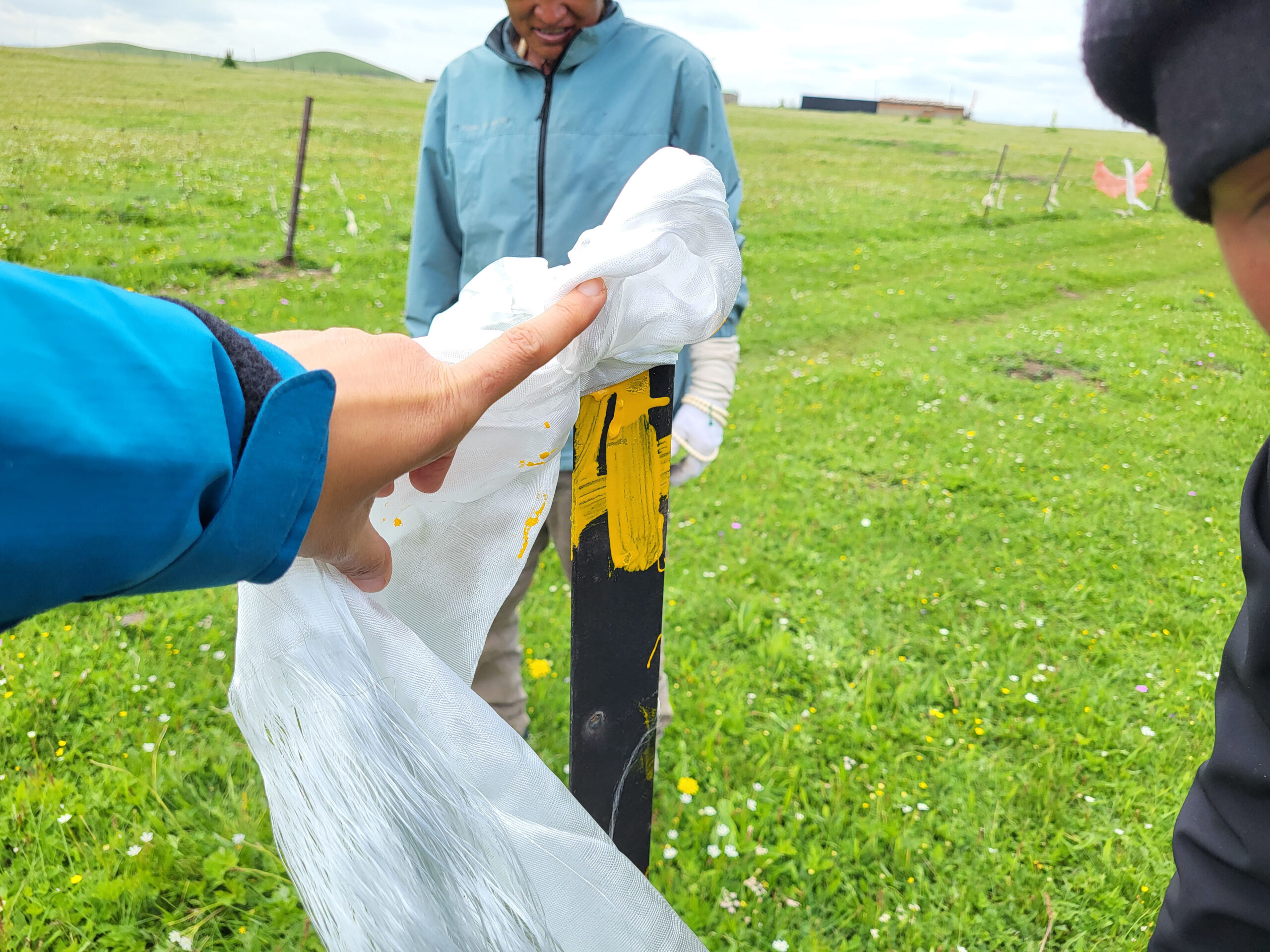
And it got me thinking: Has modern life enhanced our ability to live alone but reduce our desire to help others? Or are we so used to our independence that most of the effort and energy are devoted to pursuits of our own satisfaction and happiness? We hardly consider the collective good.
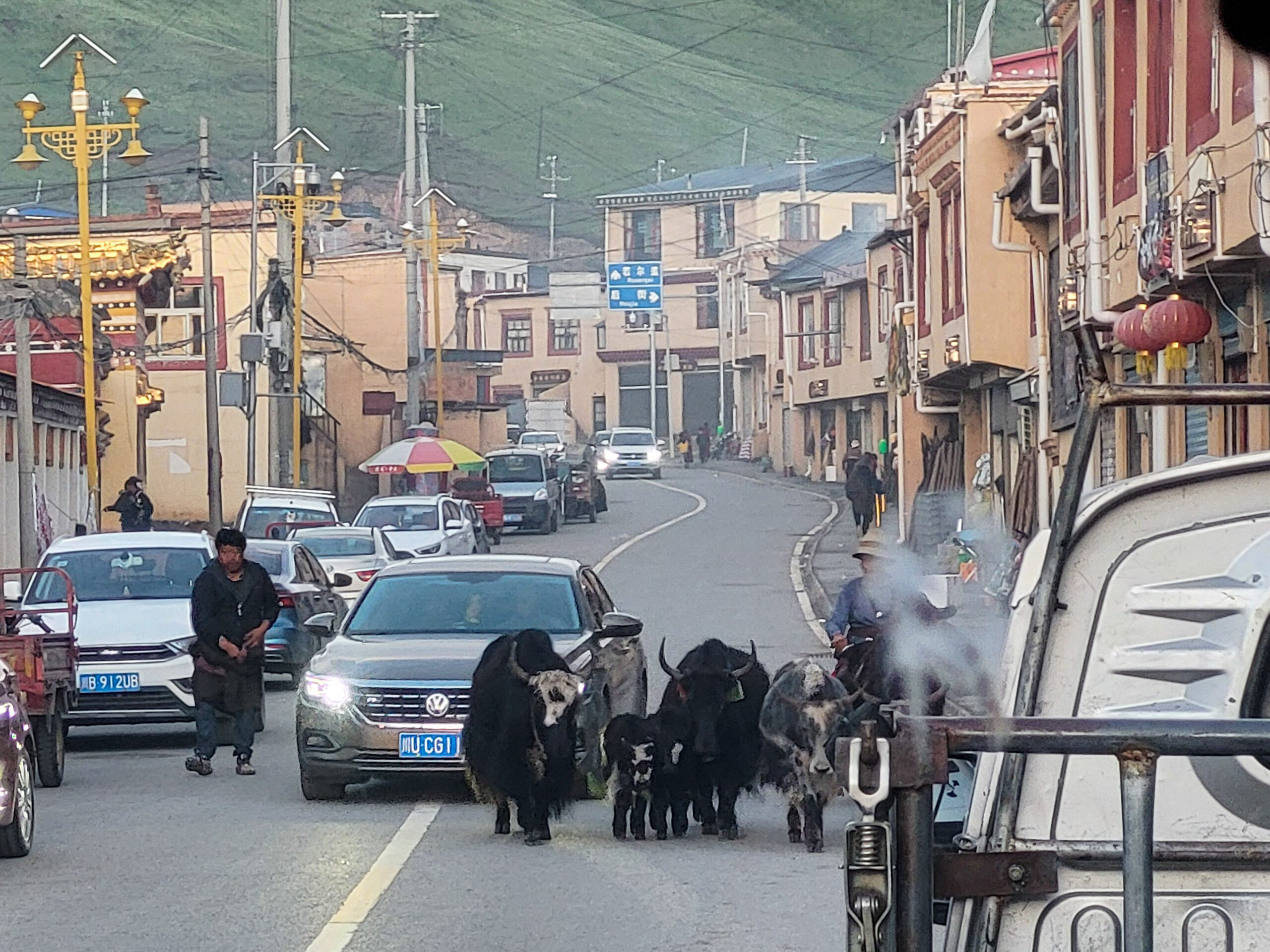
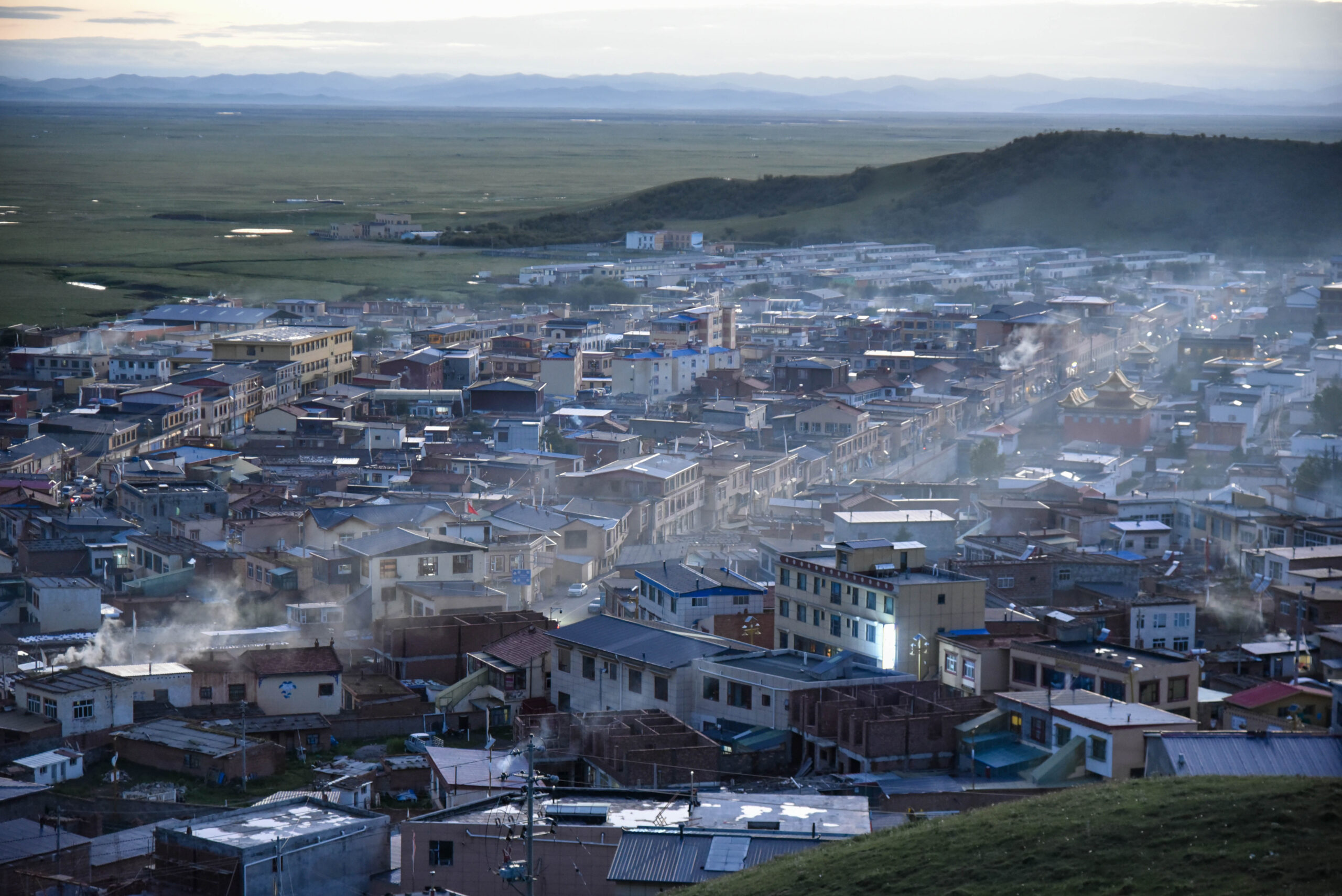
It’s part of our culture to respect and care for our parents and the elderlies. But it pales by comparison to how the Tibetans respect and take care of their parents and relatives. Ajia (阿甲) and Zhuoma are both very bright and went to universities in big cities. But they both chose to return to Ruoergai County(若爾蓋) because they want to be close with their families to look after them.
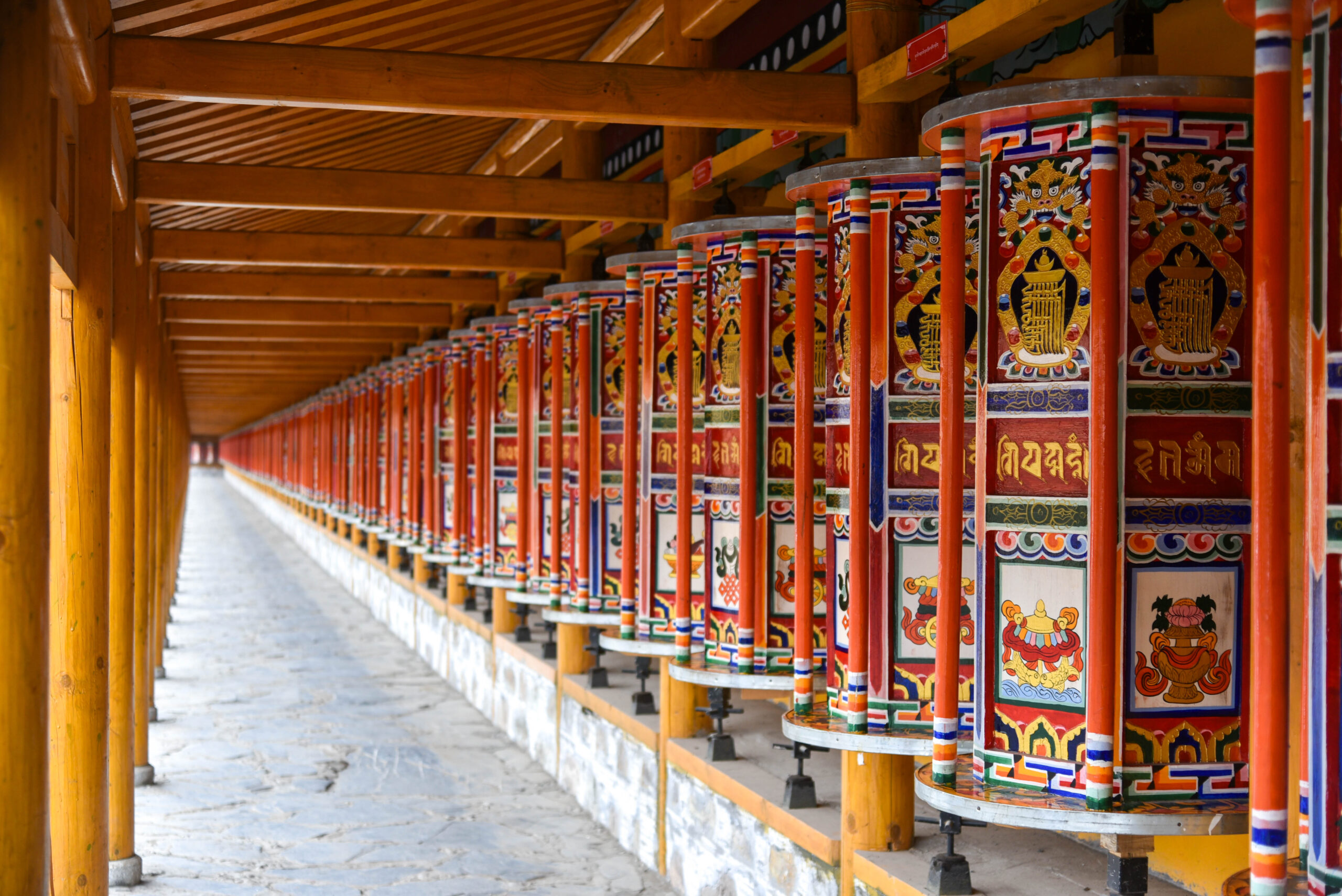
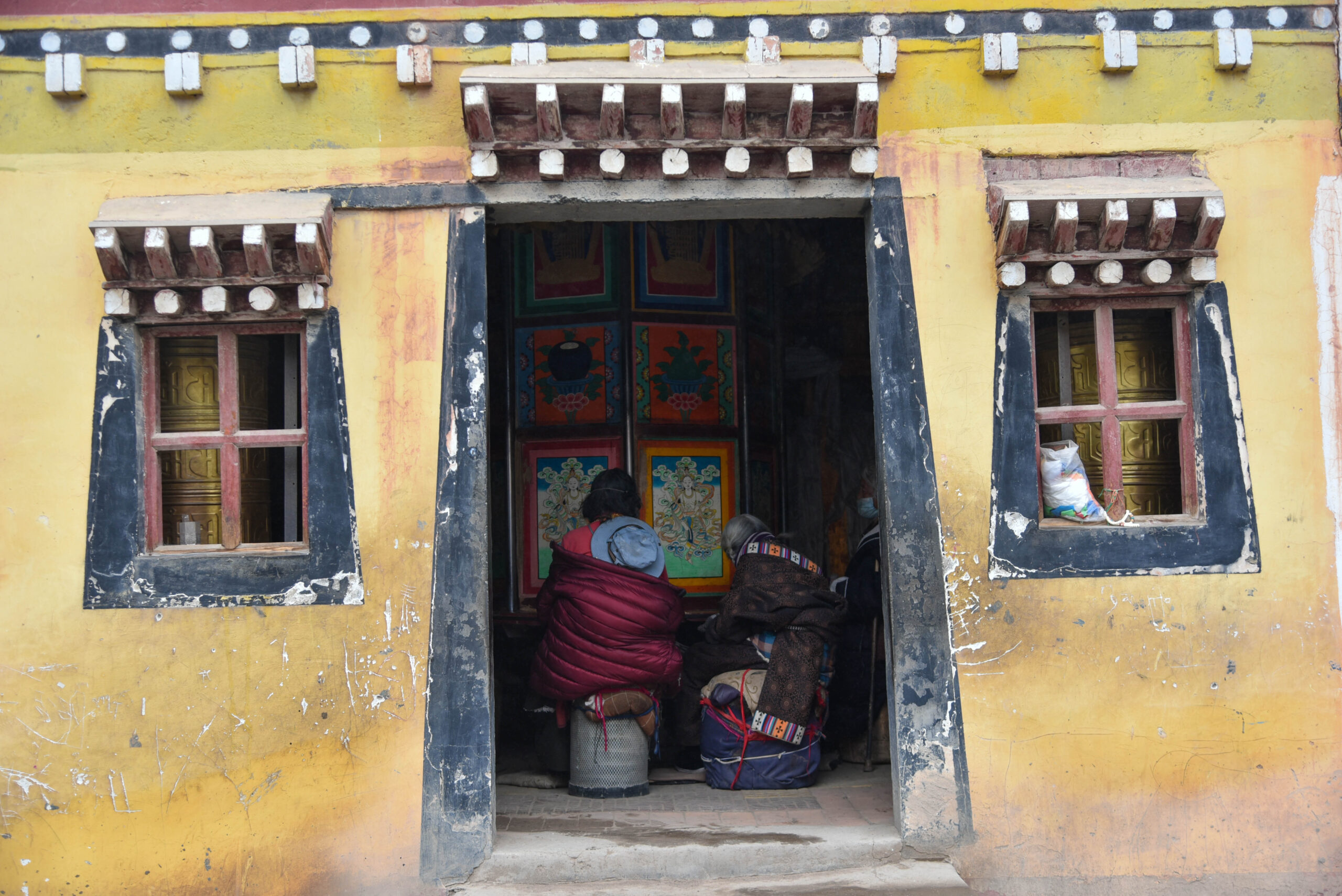

Ajia said that he never thought about finding a job in the city while he was studying in Chengdu. In his mind, the purpose of going to the university was to enable him to help family members. He had been to almost all hospitals in Chengdu (the provincial capital city where the best medical facilities are) as he was the de facto translator for any relative who needed medical attention.
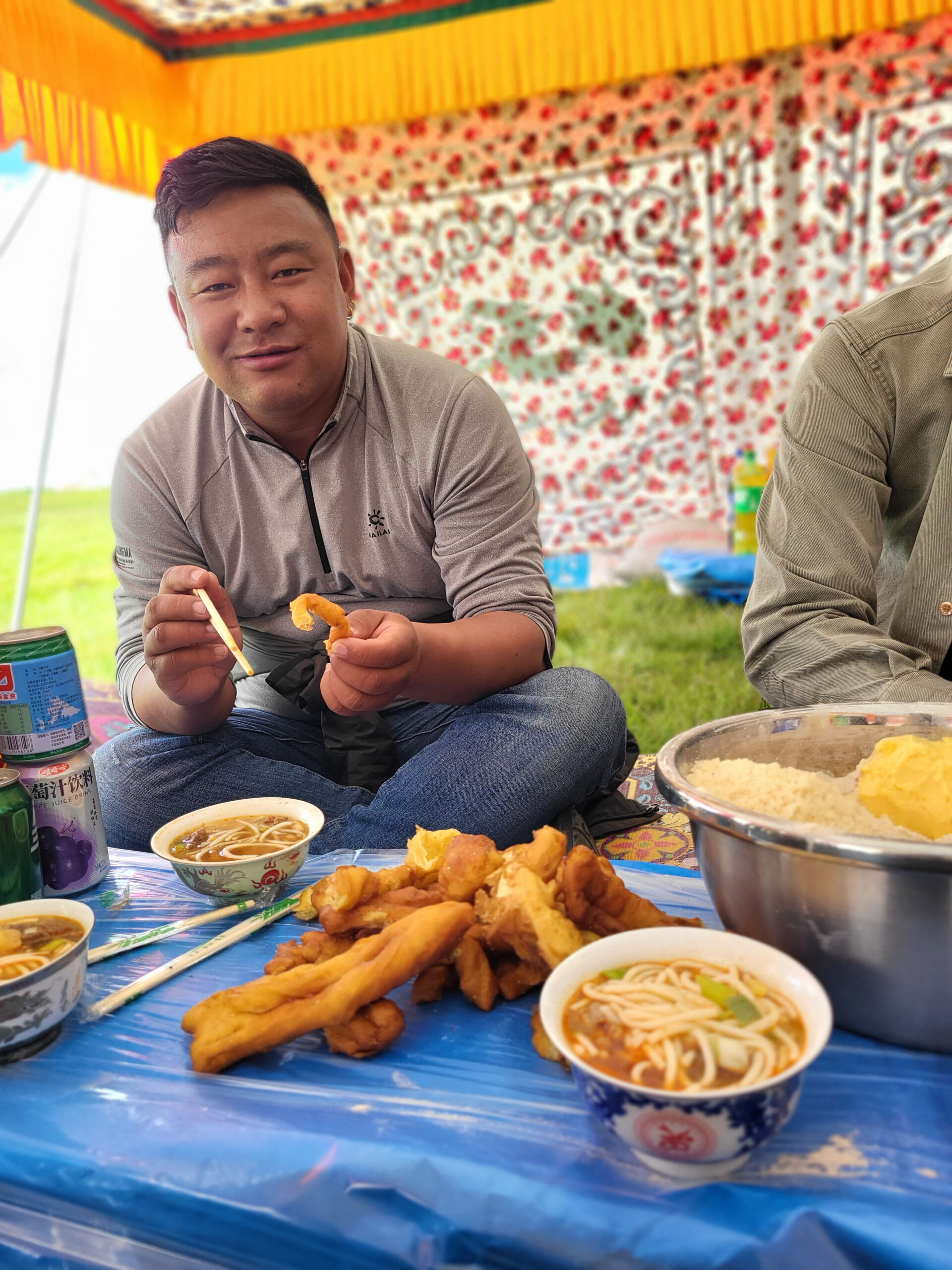
For most of us, getting educated is the natural path of growing up. Provided one has the grades and means, one can go to the university. In the grassland, this is not an individual’s choice but a luxury. Even if one is very smart, should the family needs more hands to raise livestock or help in general, he or she is not likely to get further education. Luckily, the situation is improving in recent years.
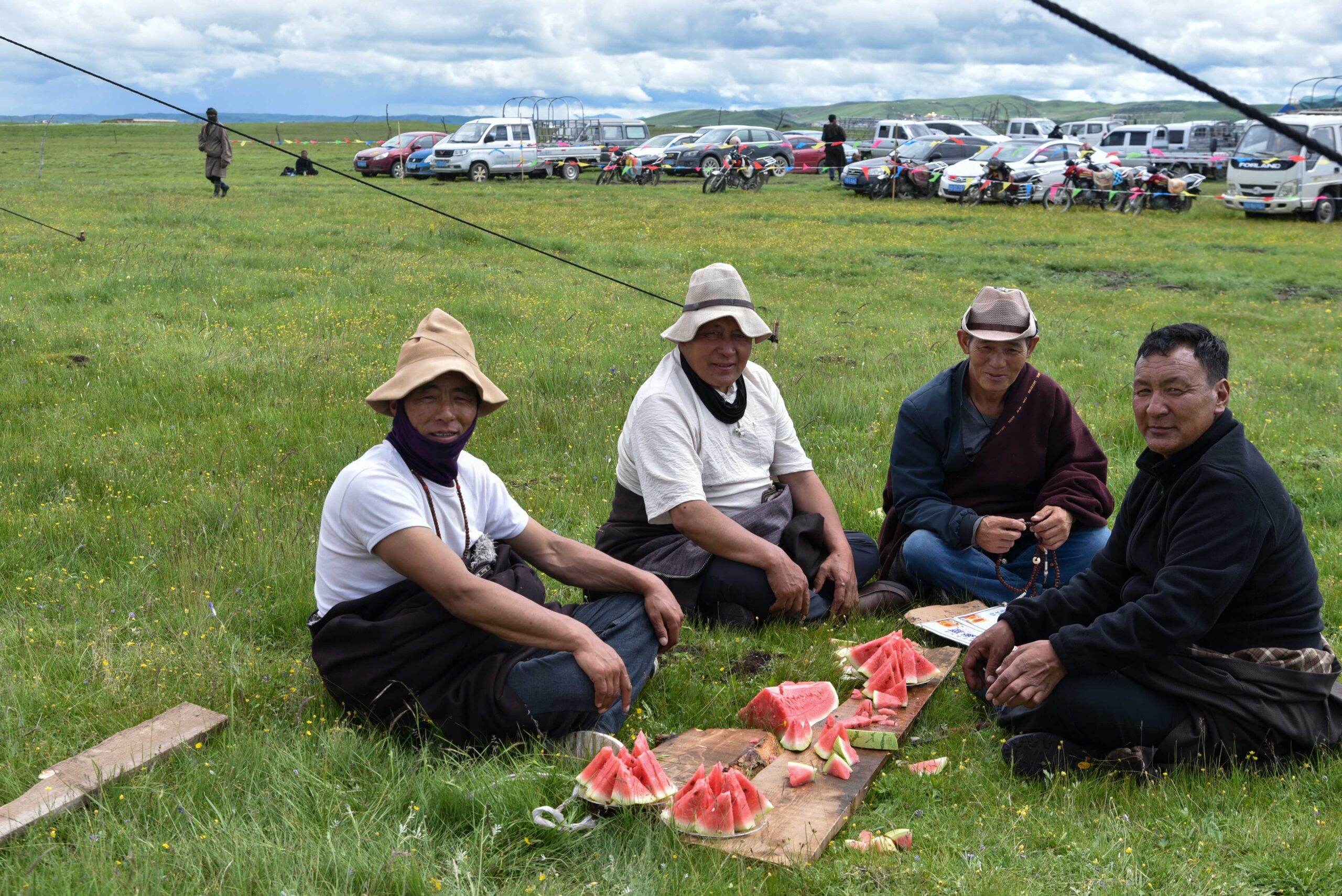
After taking part in the monumental occasion of land division, Zhuoma invited us to her parents’ home in Xiaman (轄曼鎮). Their house is at the top of the town overlooking it with a perfect view of the grassland. We can tell that her family is very well-respected judging by the size and location of their house.

Zhuoma’s father has a warm smile and a big heart. When we met him the first time in his home, he gave us each a Hada (哈達). Hada is a piece of long fabric (it can be white, blue or colourful depending on the purpose) and it symbolizes honour, respect and welcome. He apologized for the inadequacies of his house and not being able to treat us in a better manner. We were deeply touched by his humility and how much they wanted to make us feel comfortable.
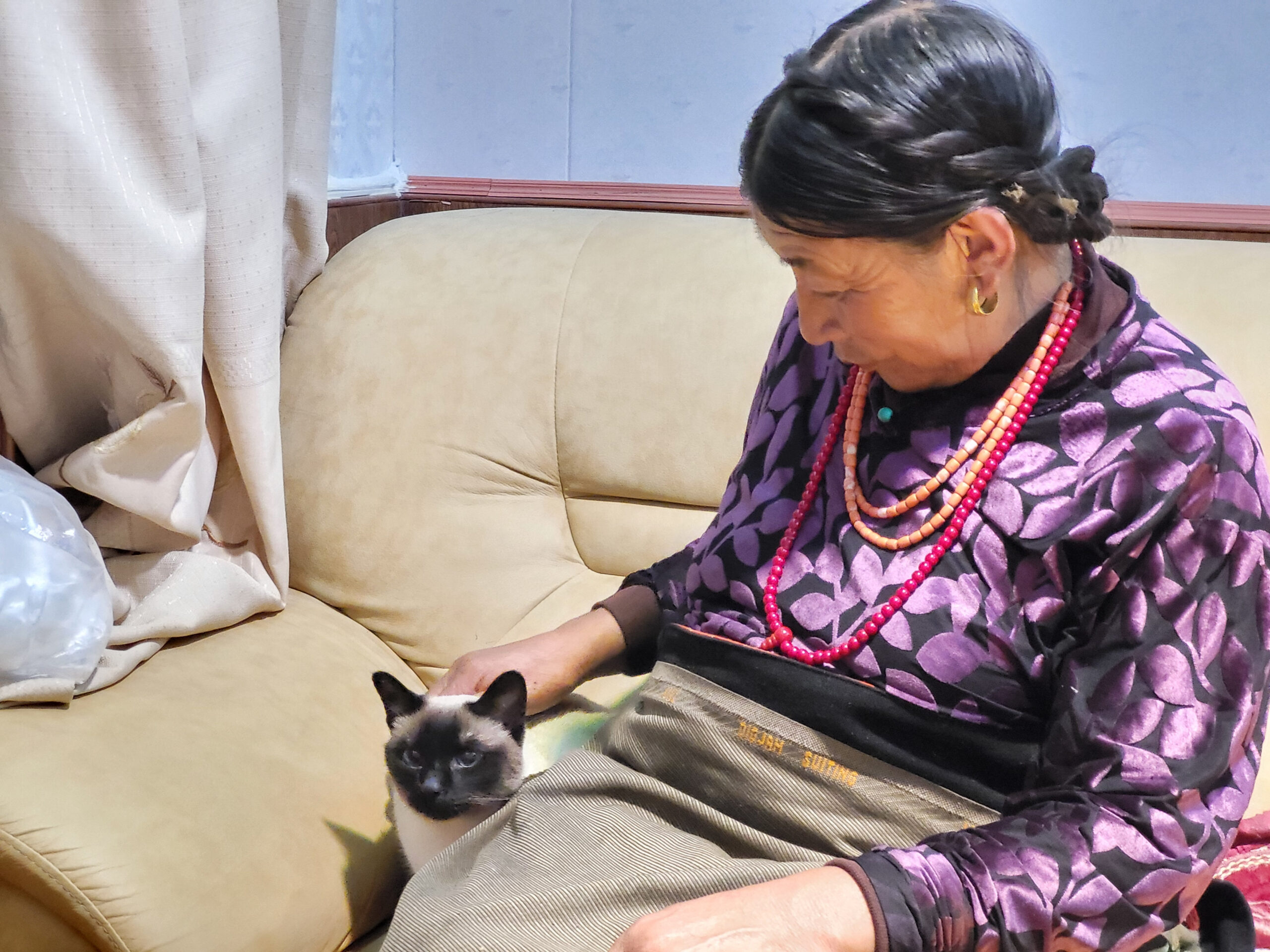
At dinner, we asked Zhuoma’s father about their religion and beliefs, he pointed out that he couldn’t explain as it’s not about his words but learning through experiences and actions. It made me question our propensity to voice our opinions. We are so prone to form our views and judgement when in reality, we are ignorant and biased. We often think we are right but in fact can’t see beyond the surface and understand the multiple facets of facts and situations. Zhuoma’s father on the other hand, is wise and yet so humble and curious about our lives and way of thinking.
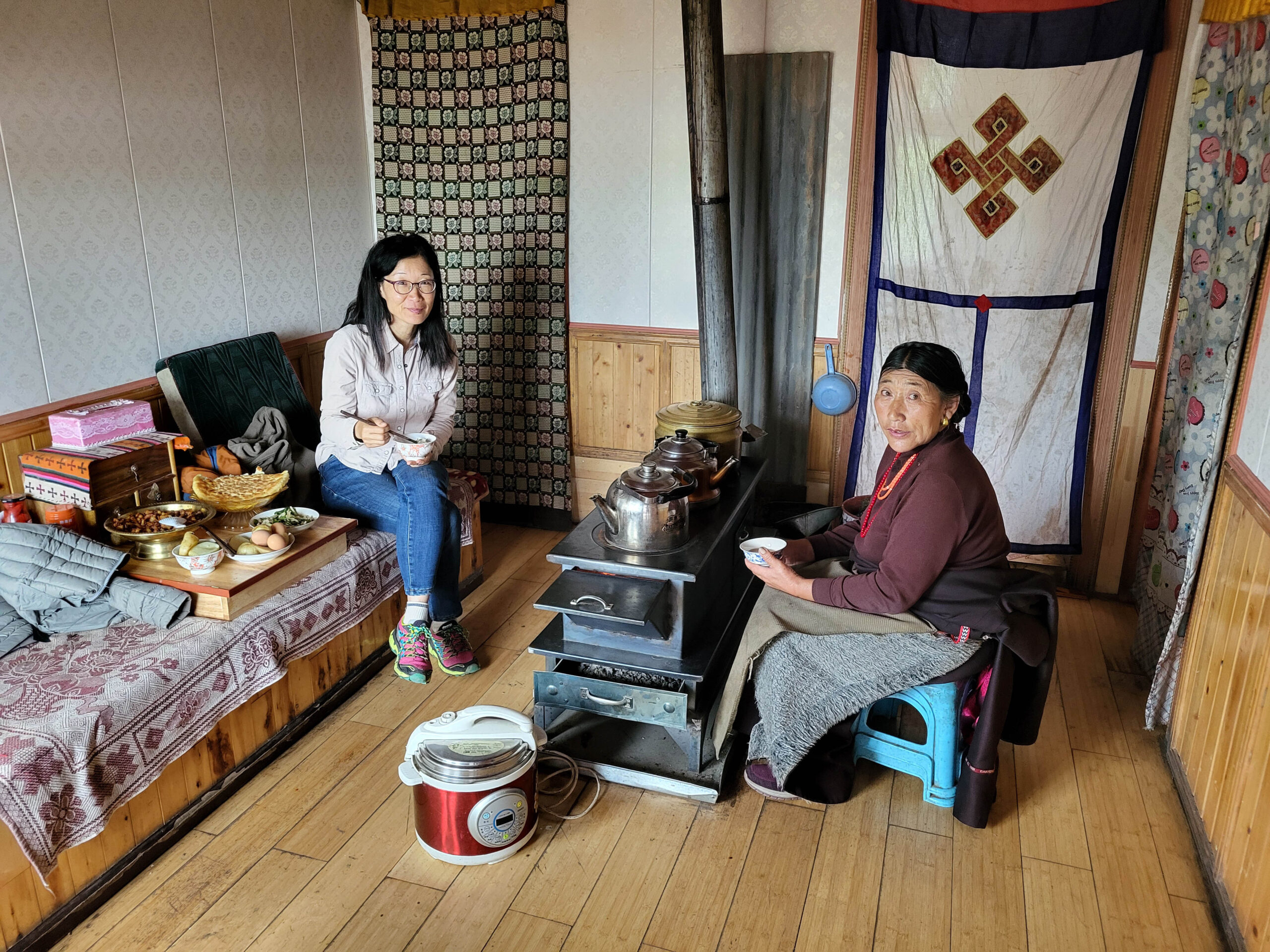
Zhuoma’s mother is beautiful and has a graceful presence. When she looked at us, I feel as if her eyes could penetrate my thoughts. She always made sure that we had lots to eat. Their eldest daughter and her 12 year-old grandson live with them. I could tell that the grandson is very close to his grandfather by the way they talked to each other.
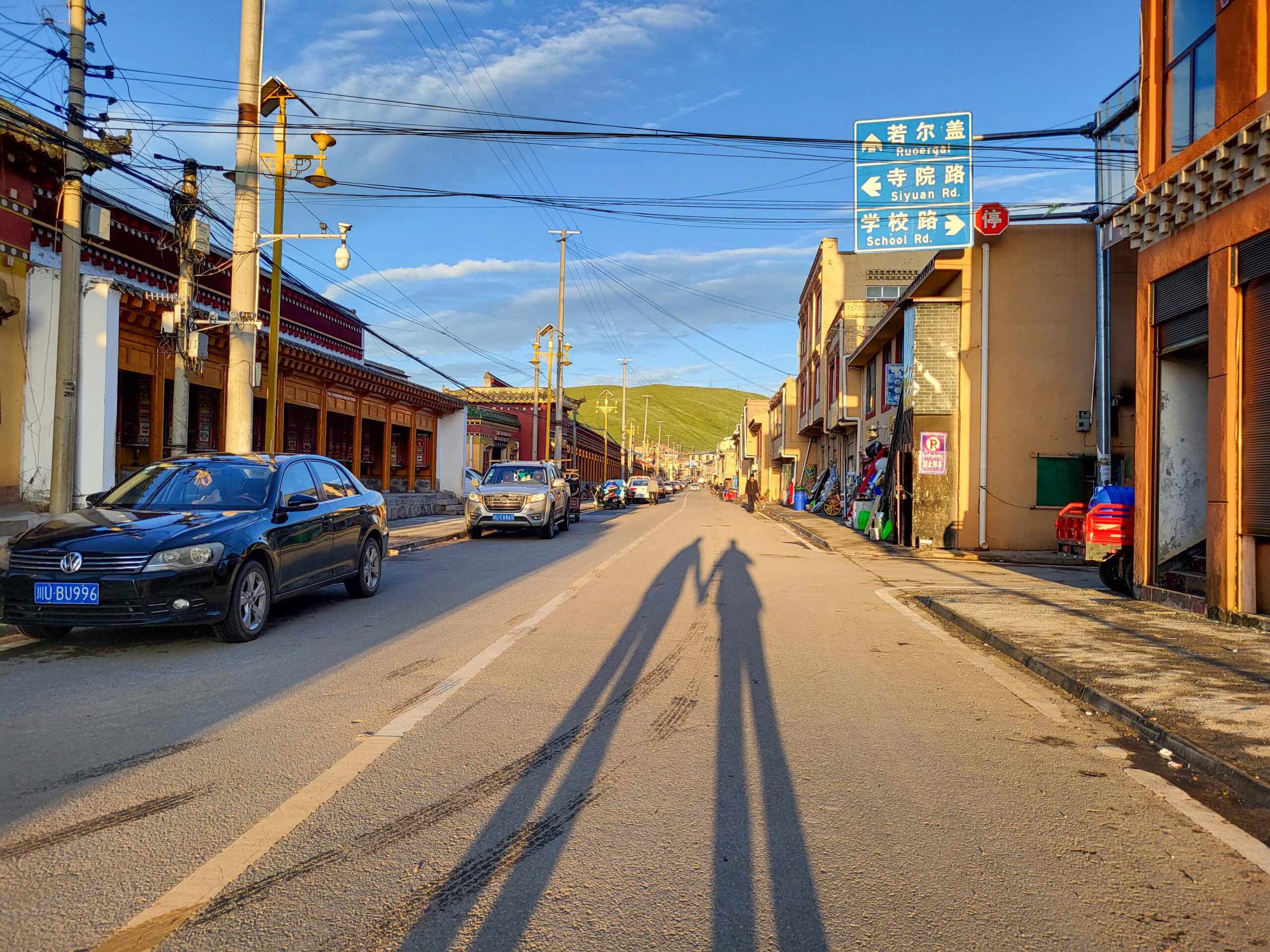
We parked outside their house that evening and had a pleasant sleep in the van. The next morning, the grandson knocked on our van to invite us to breakfast. We had breakfast together and then he went to school. He hung out with us whenever he’s back from school. The next day he didn’t need to go to school. So, we walked down to the town together where he had a hair cut for a coming wedding.
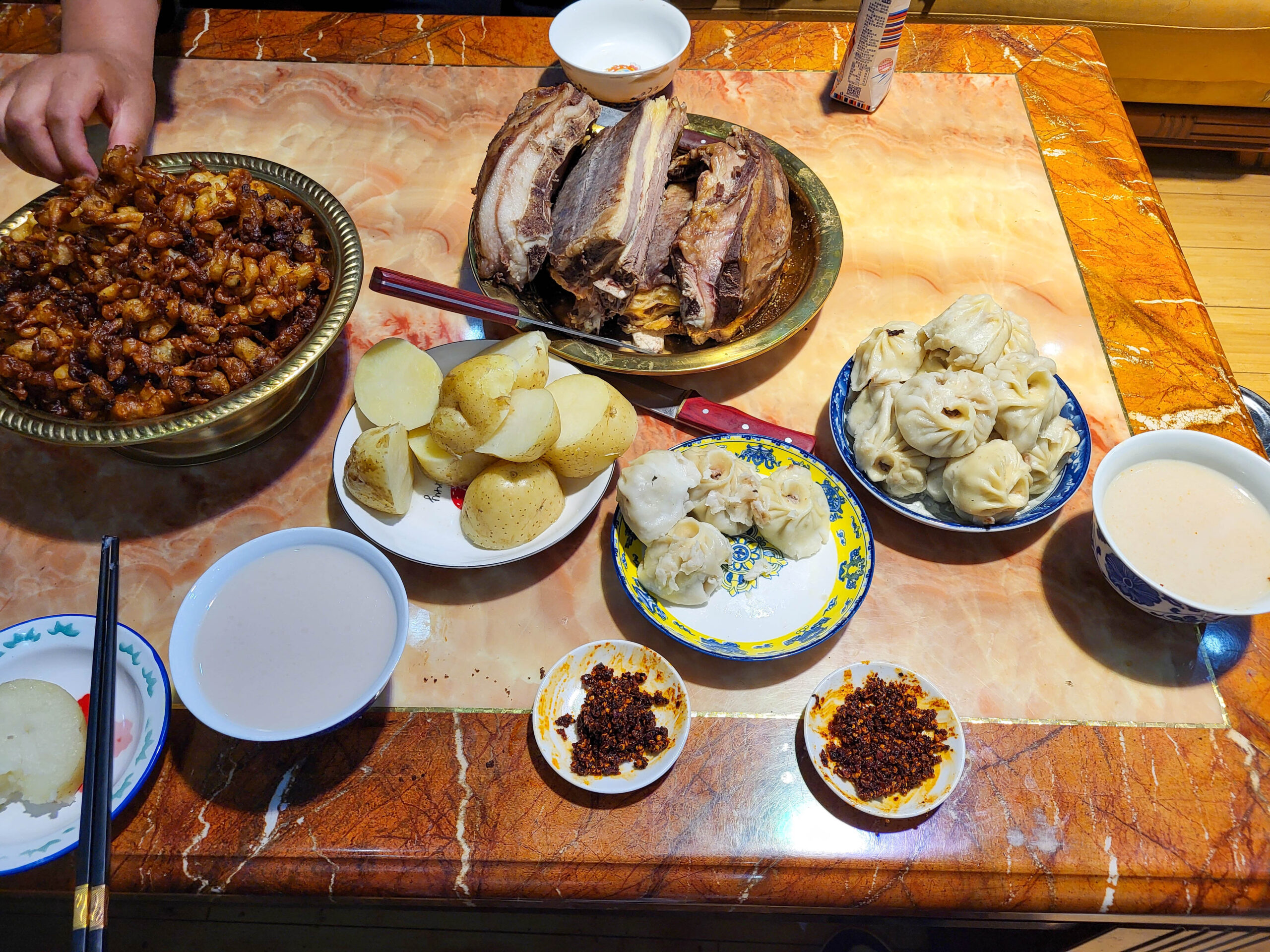
Zhuoma invited us to attend a traditional grassland wedding. In recent years, many Tibetan weddings are modernized and held in big banquet halls. So, we were extremely lucky to be taking part in an authentic grassland wedding. Zhuoma and her eldest sister went to the pasture three days before the wedding to supervise the set up and preparation. We arrived two days before and saw beautiful tents were already set up. Many relatives and neighbours came to help.
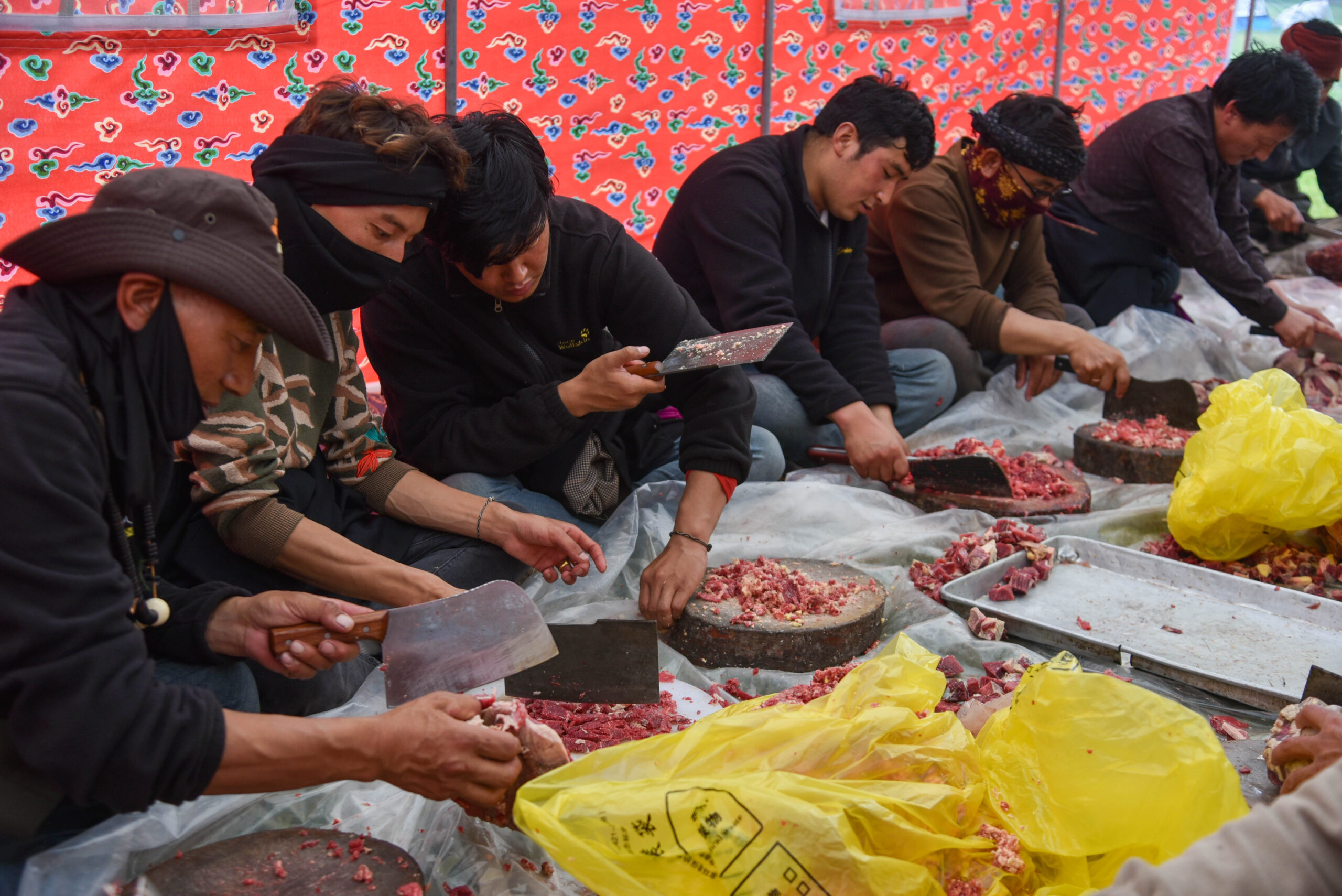
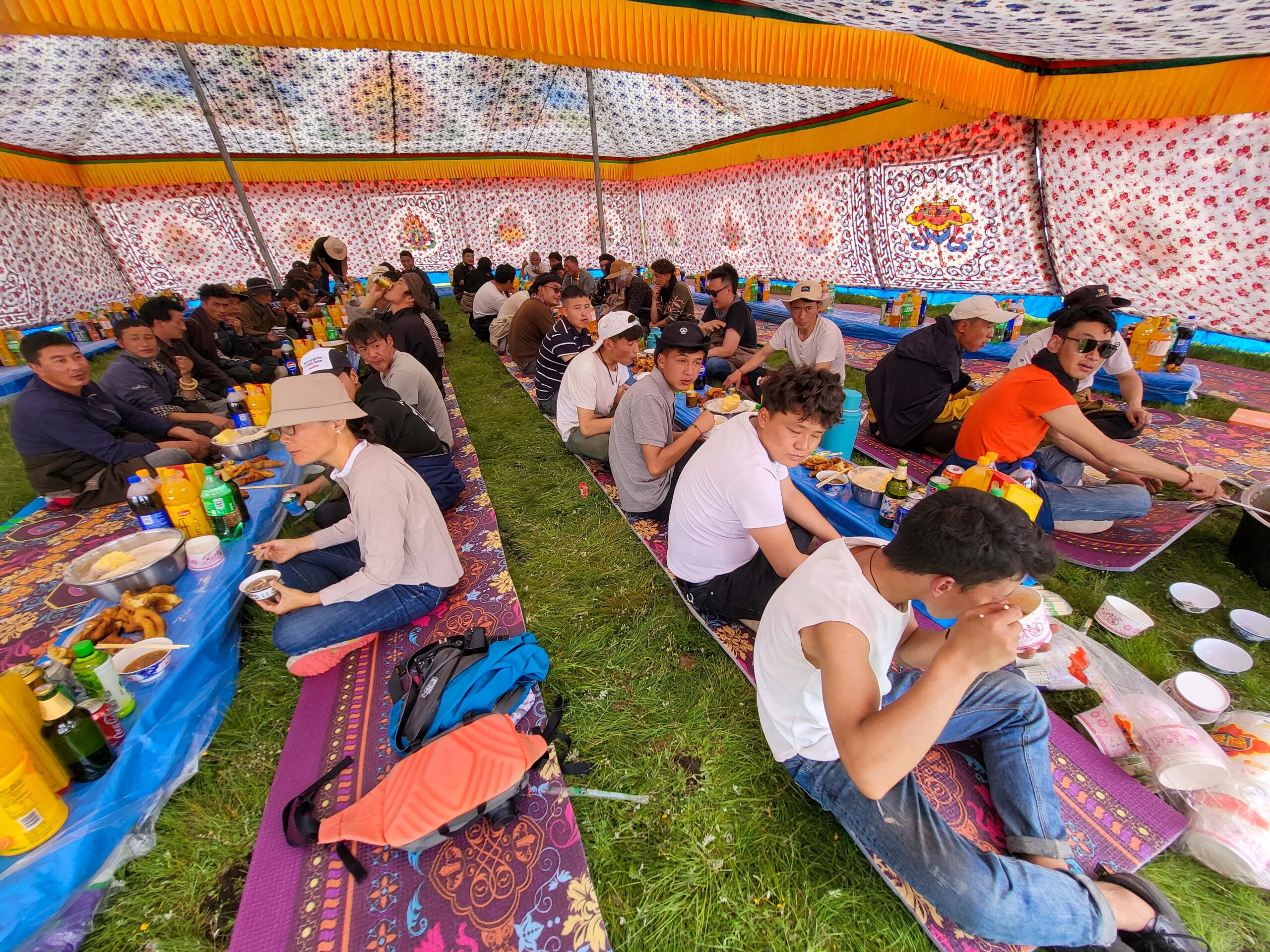
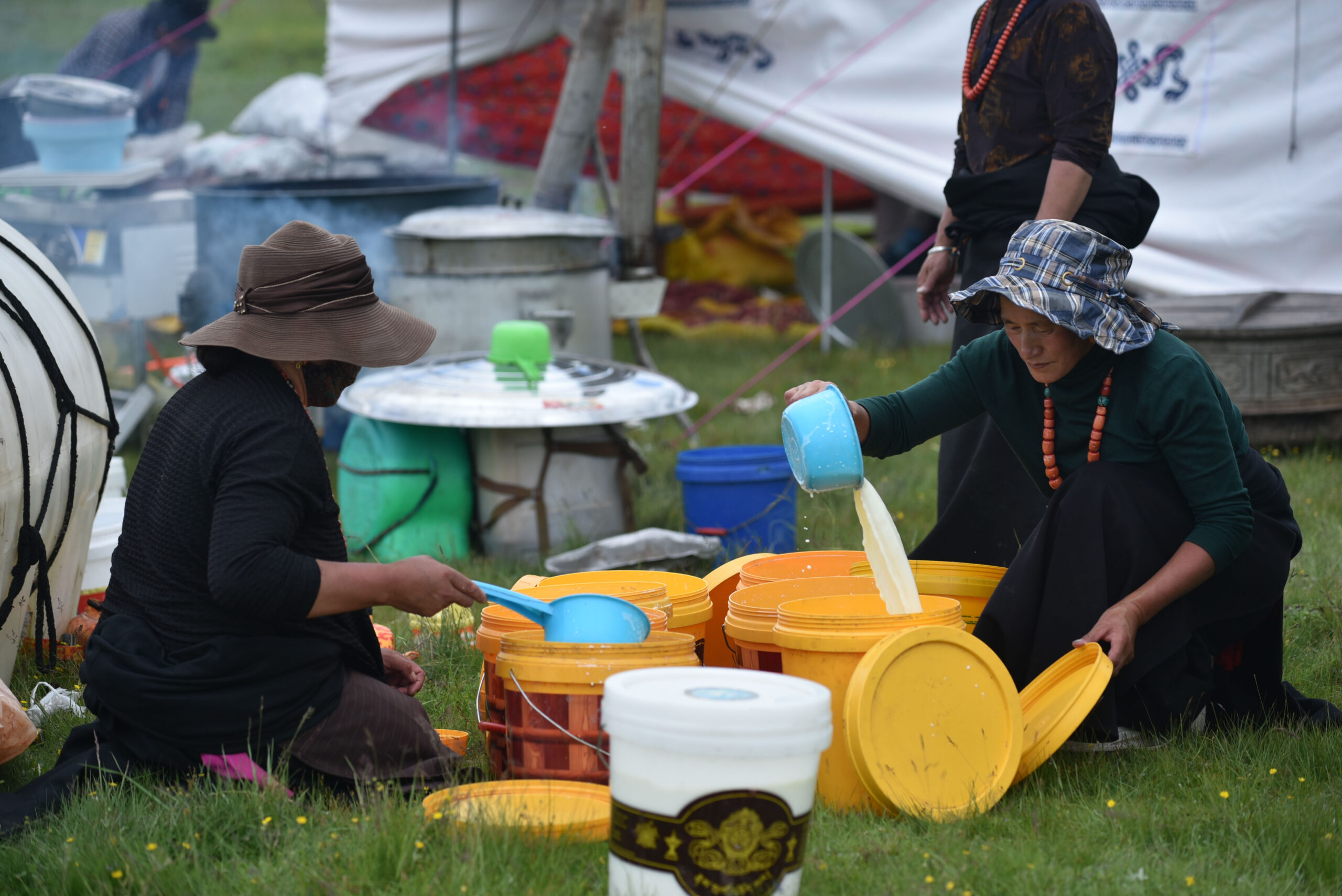
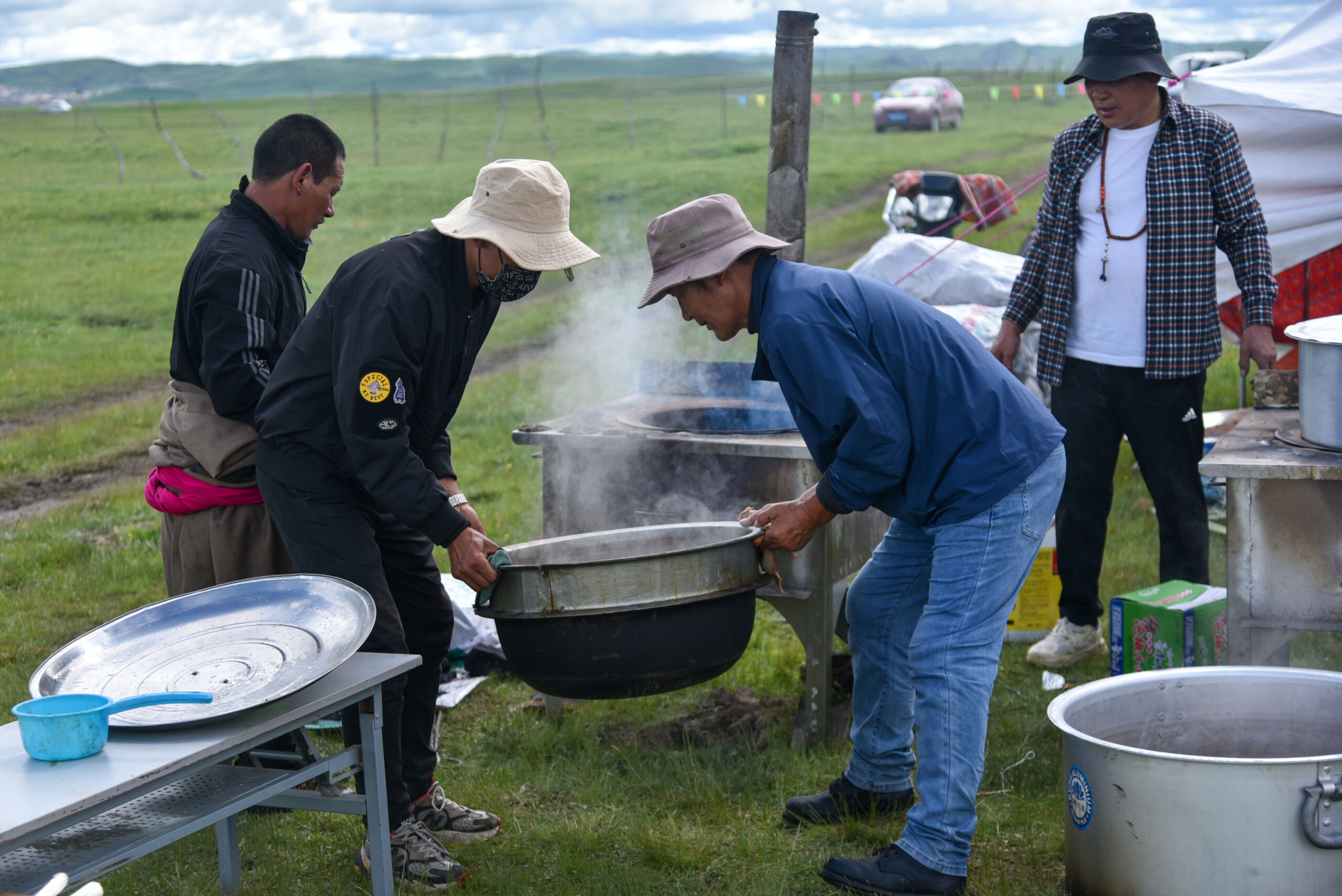
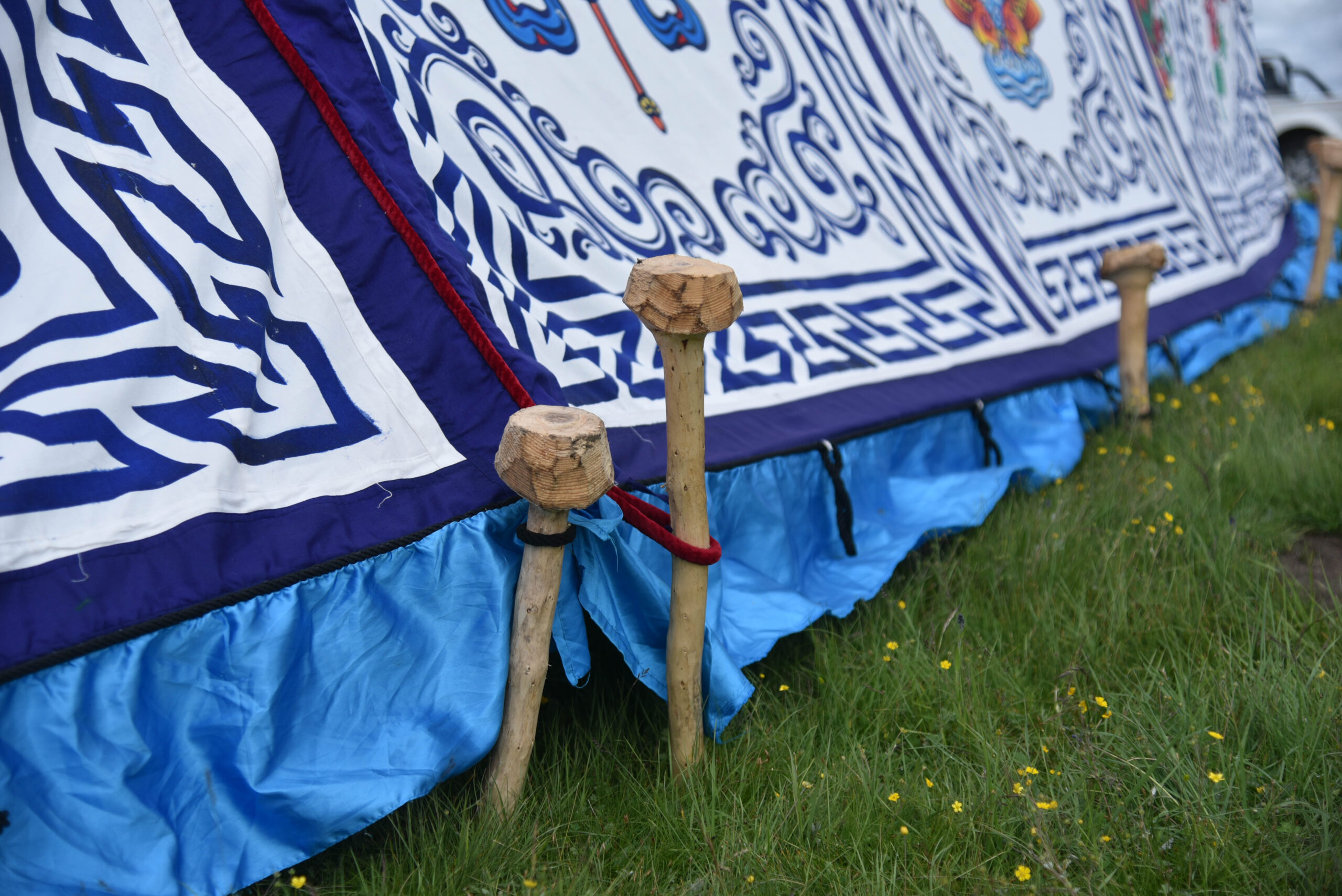
The wedding lasted the whole day with about a thousand guests attended. There was no rundown and the guests would arrive from the morning onward with food and drinks served free flow throughout the day. Since they didn’t have any photographers, Kin volunteered to be one.
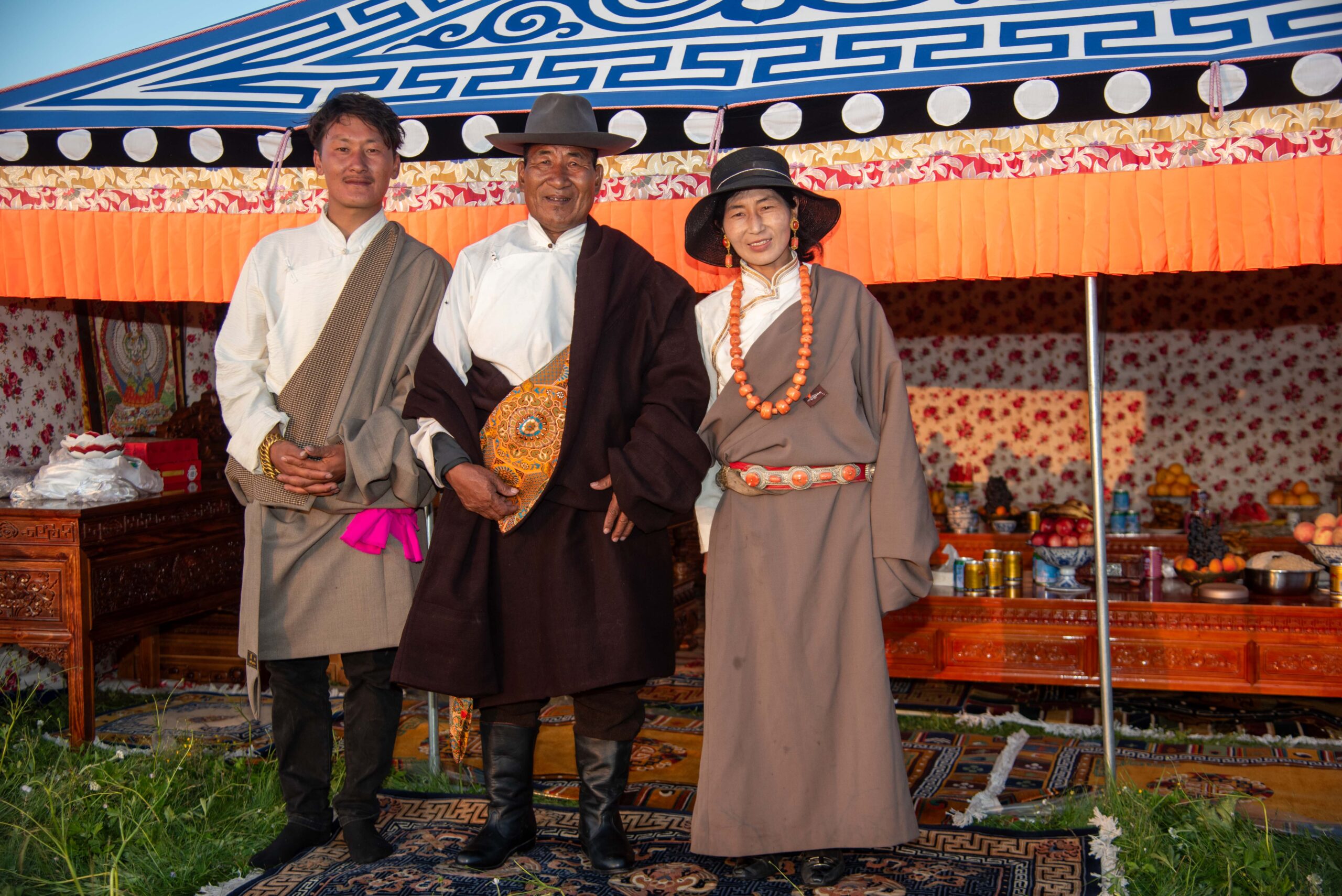
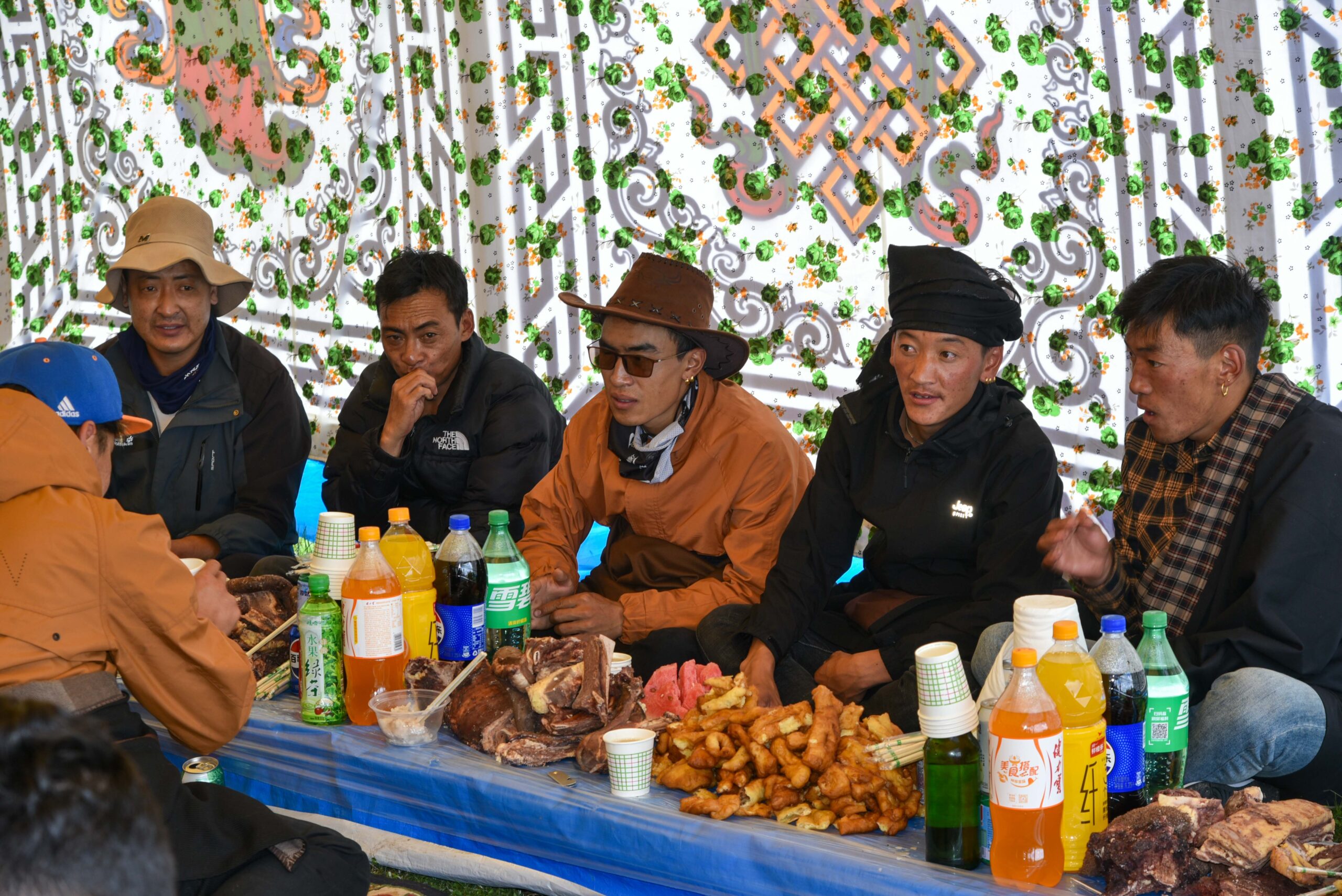
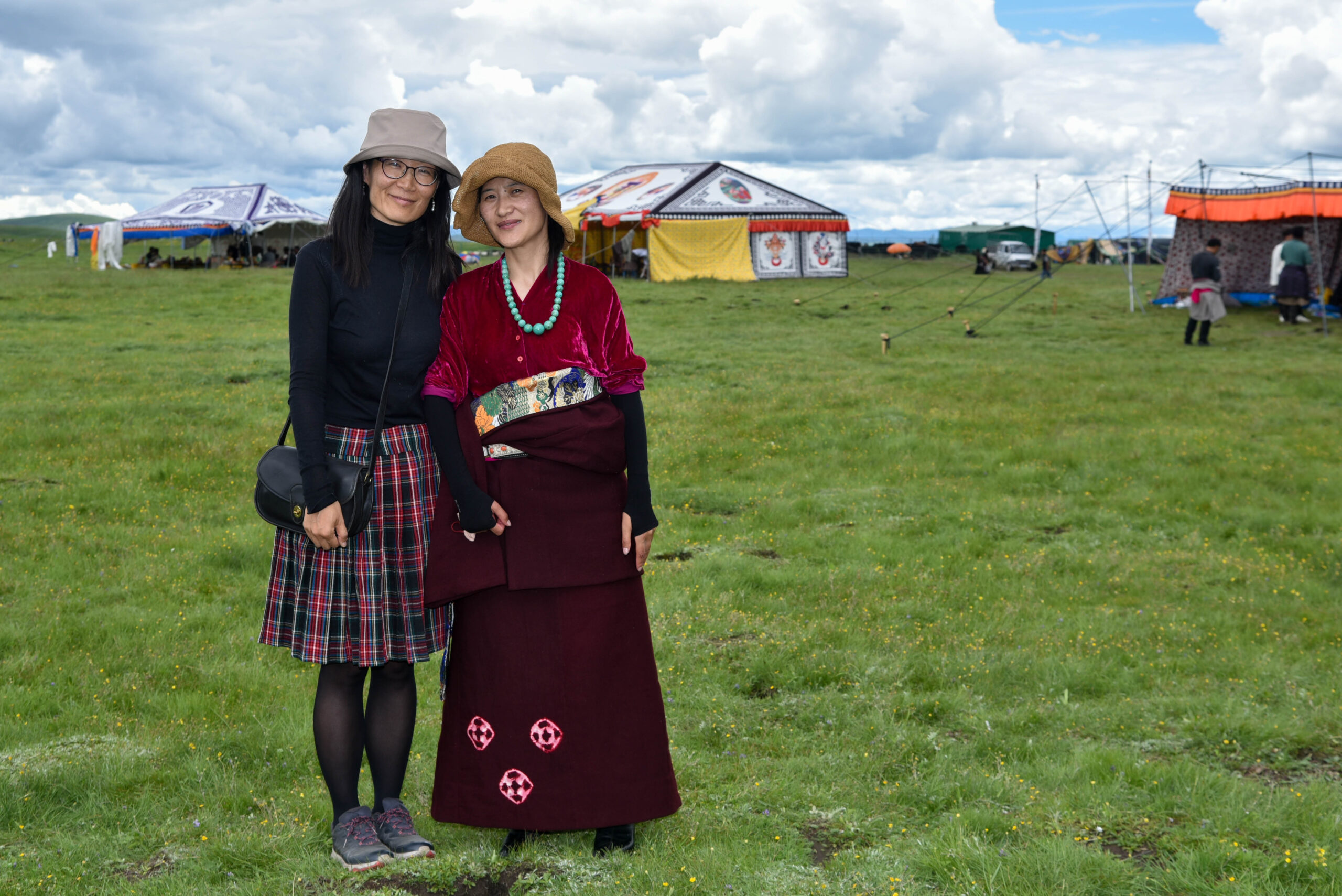
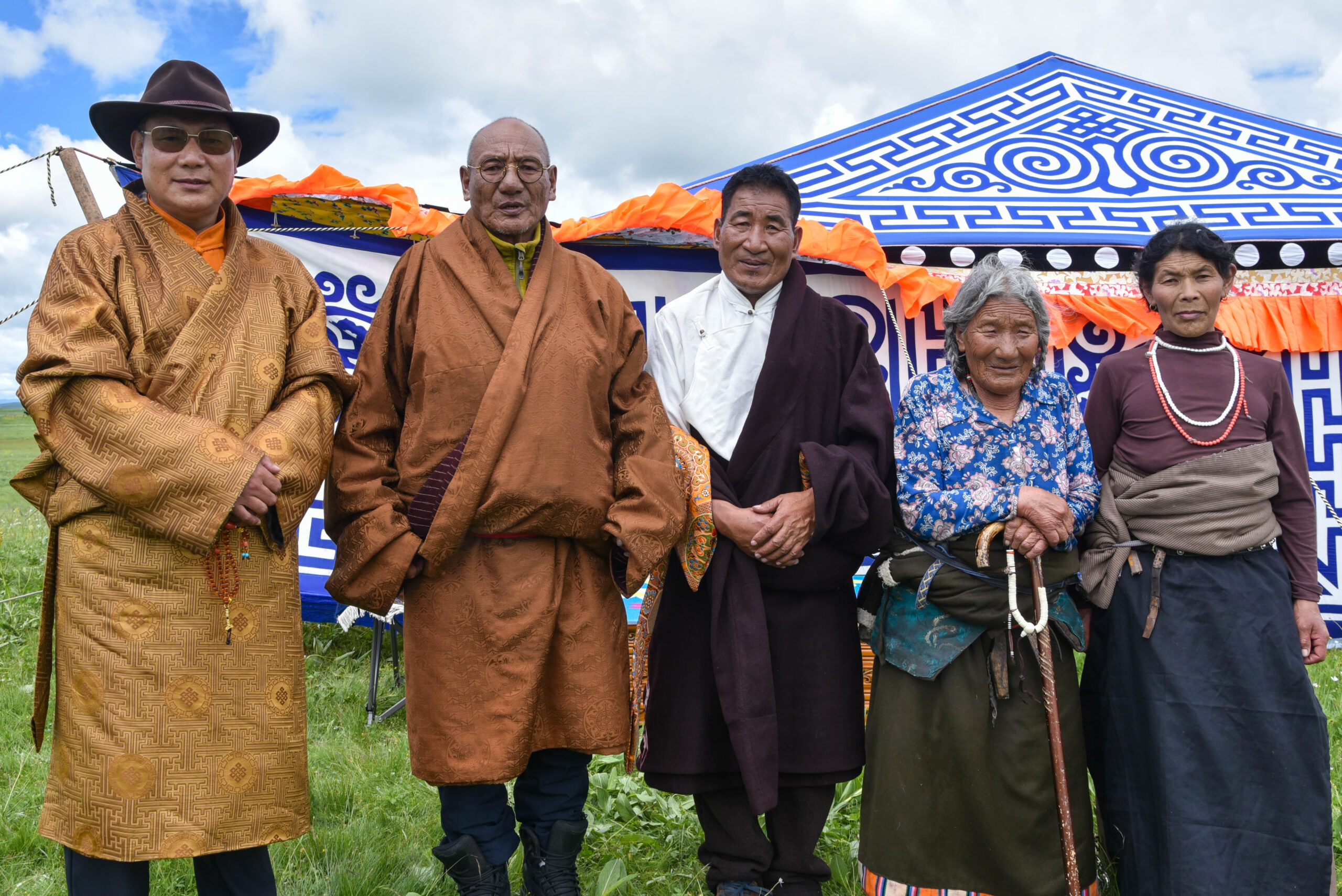
In modern society, some weddings have become a show of extravagance or an occasion to foster business relationships. It is a different matter here. There’s no grand ceremonial proceeding or elaborate wedding gowns. Wedding in the grassland is an occasion for letting others to contribute to the building of a new family. Apart from cash, families and friends give yaks and sheep to the newlyweds. Everyone contributes to the couple so that they have the resources to start a new family in the grassland and to let the tradition carry on.
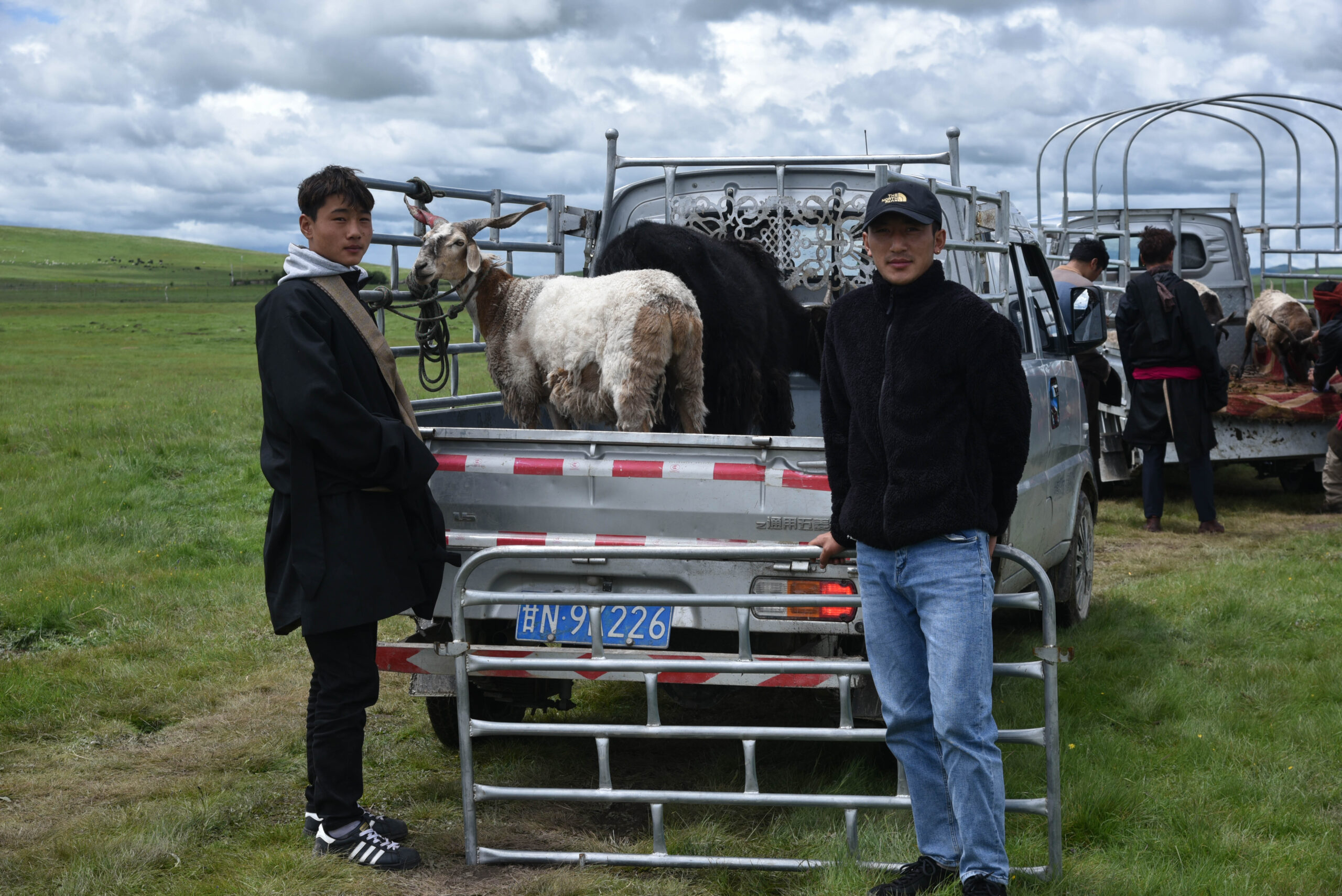
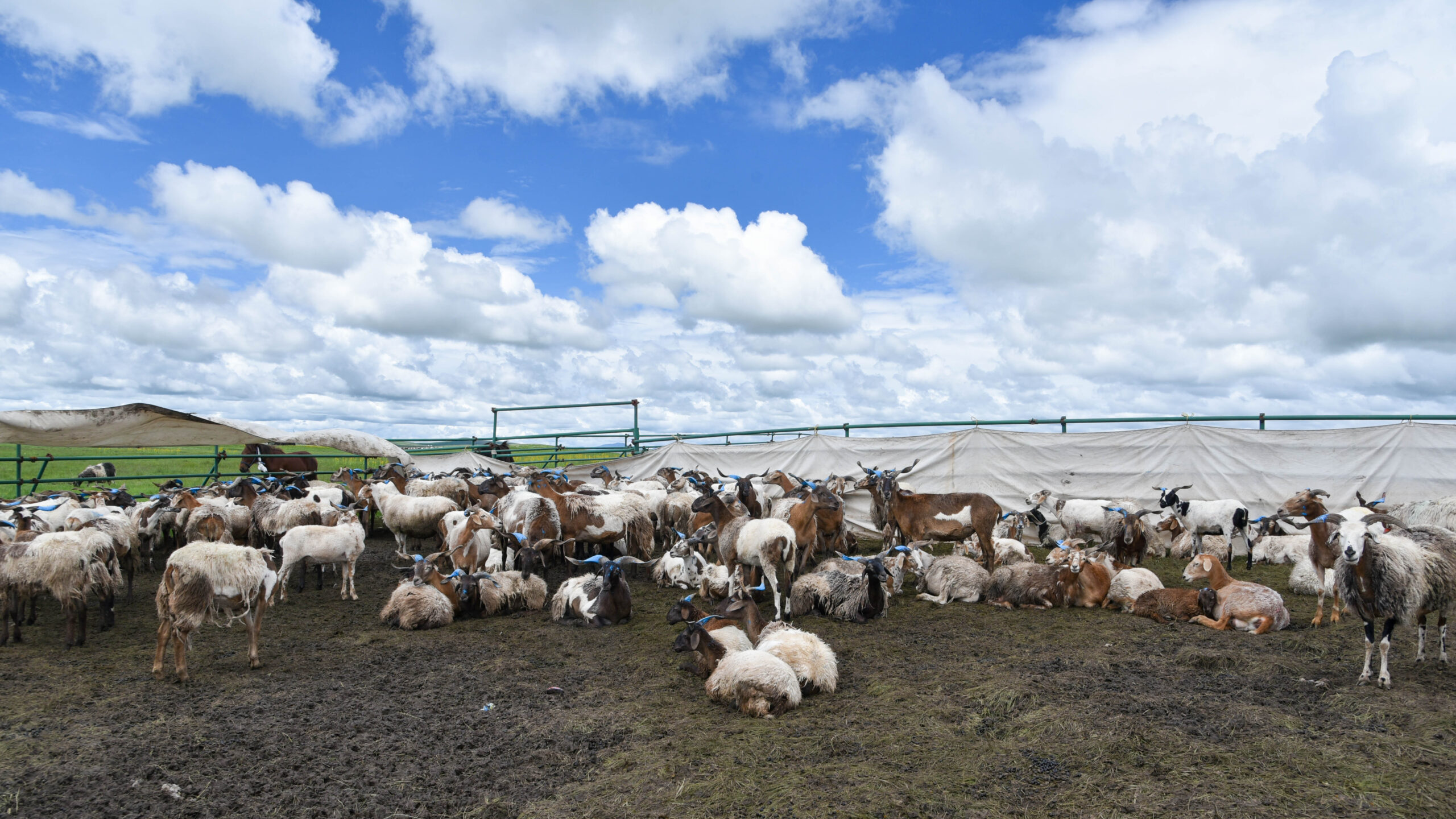
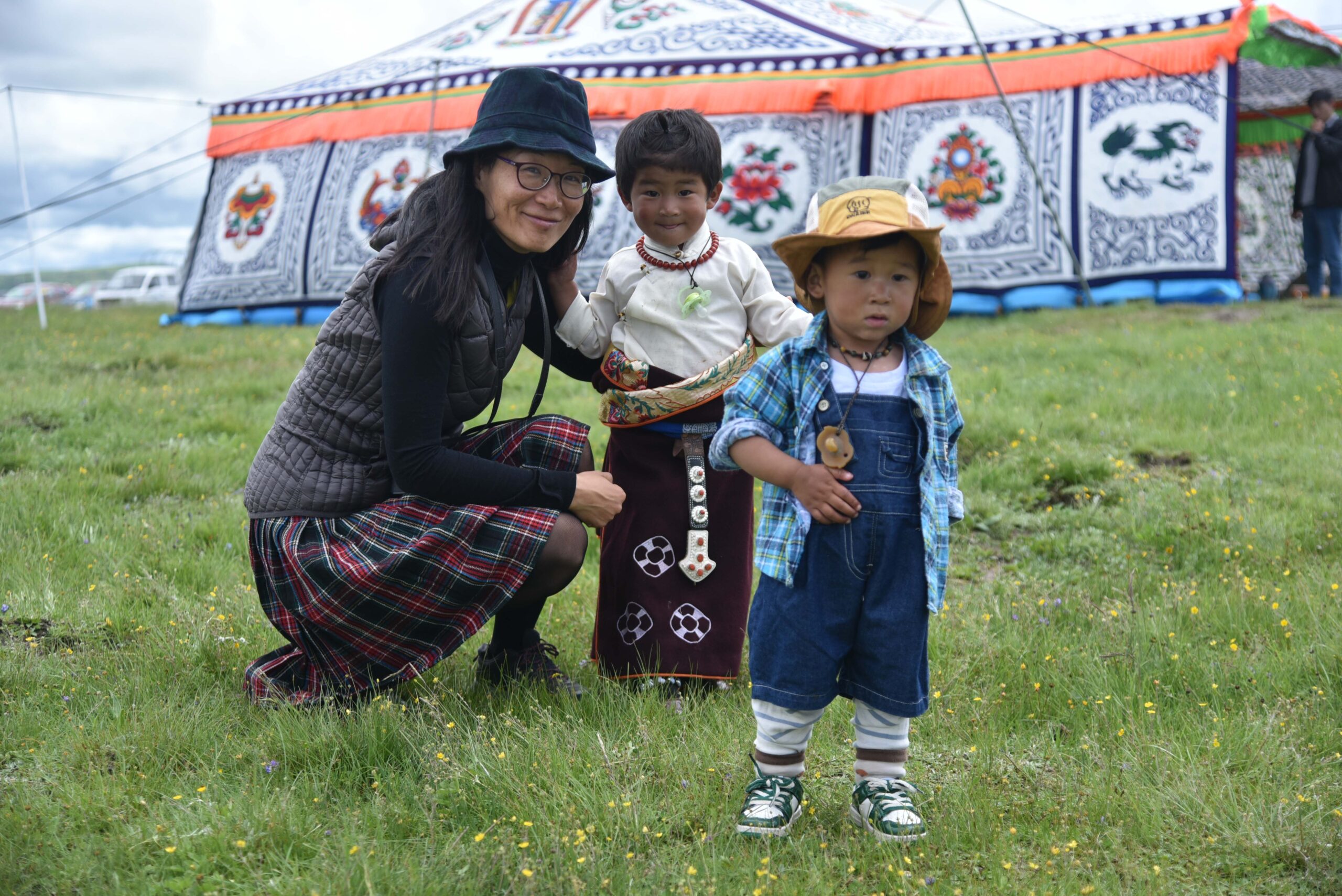
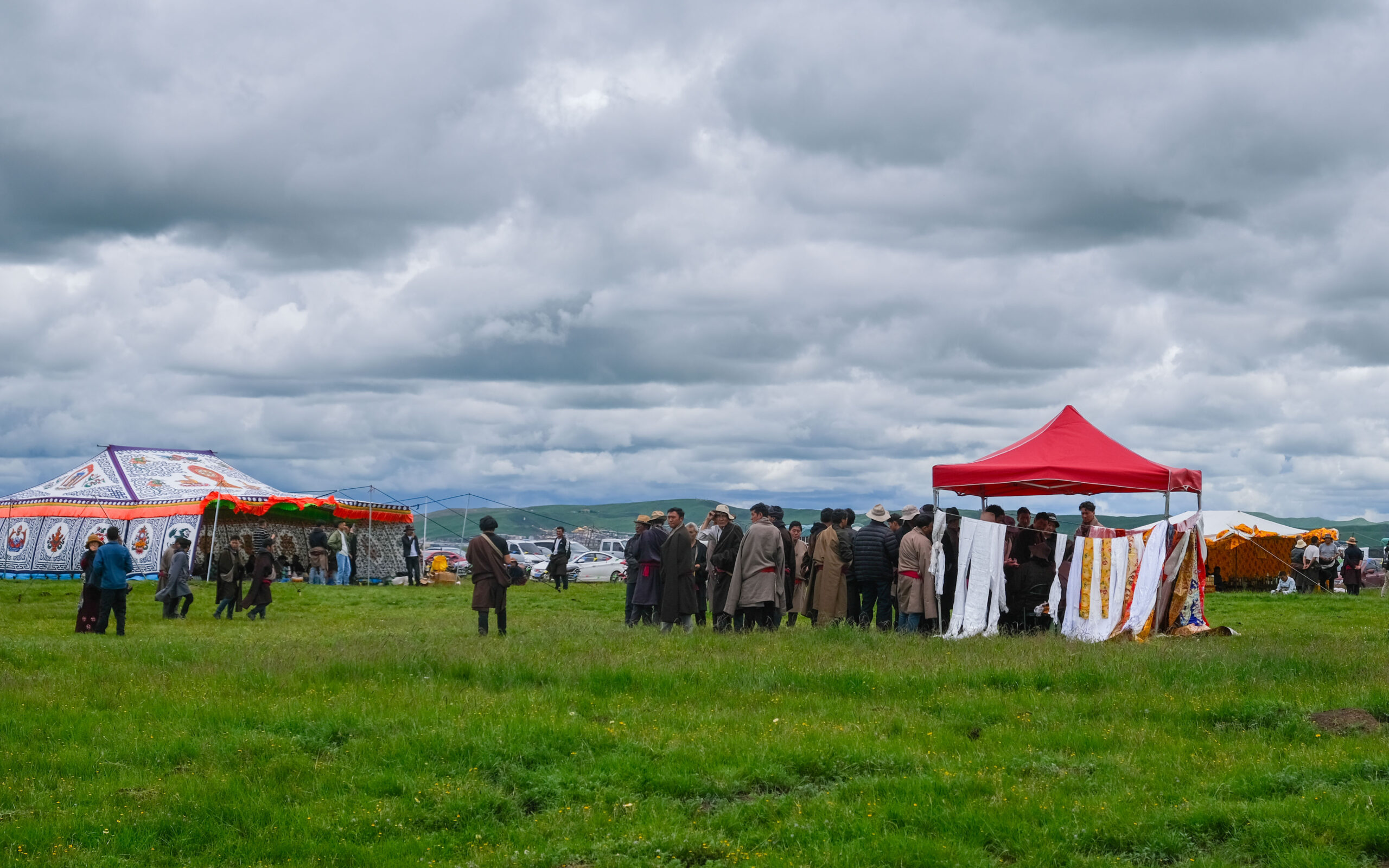
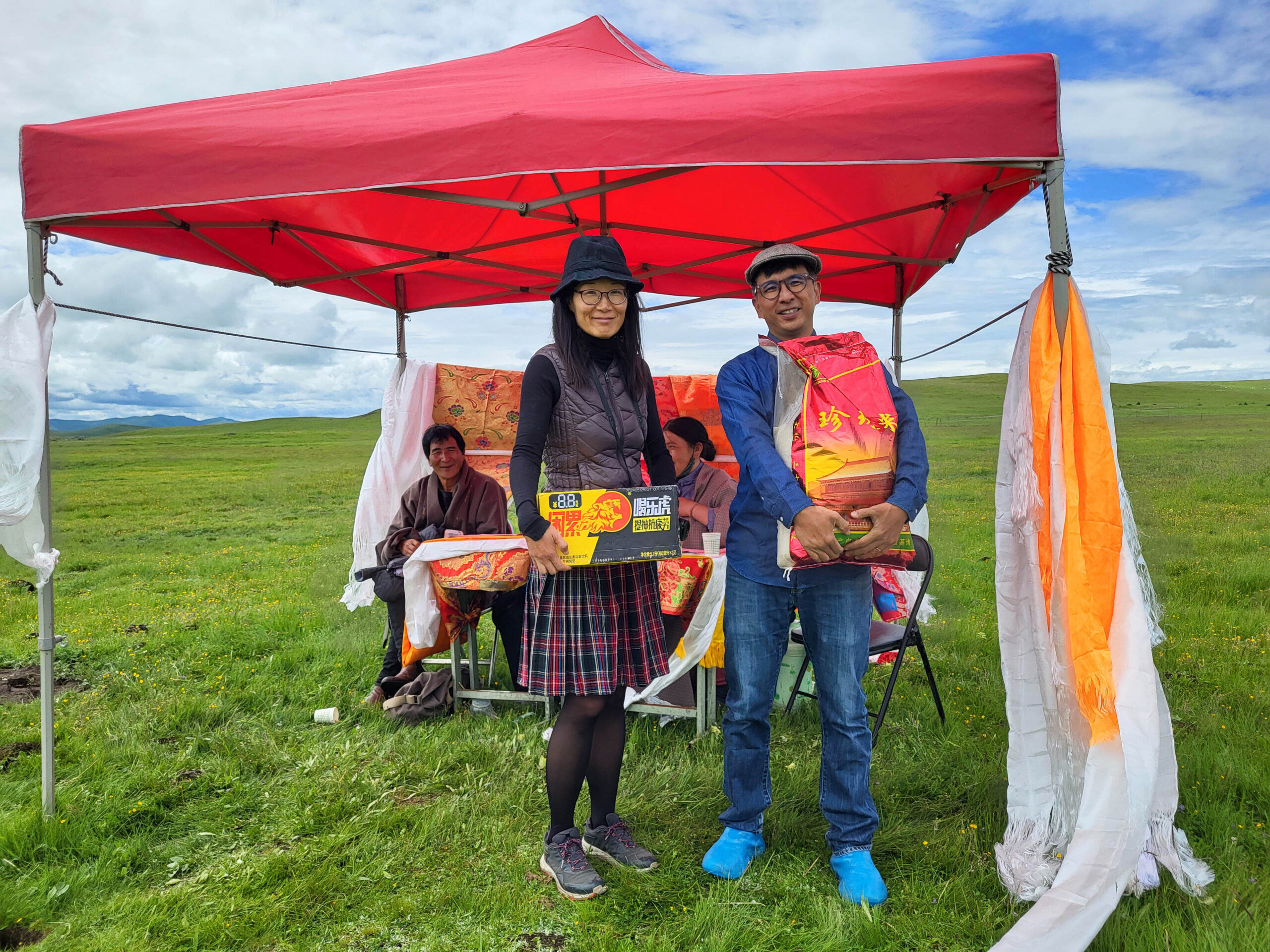
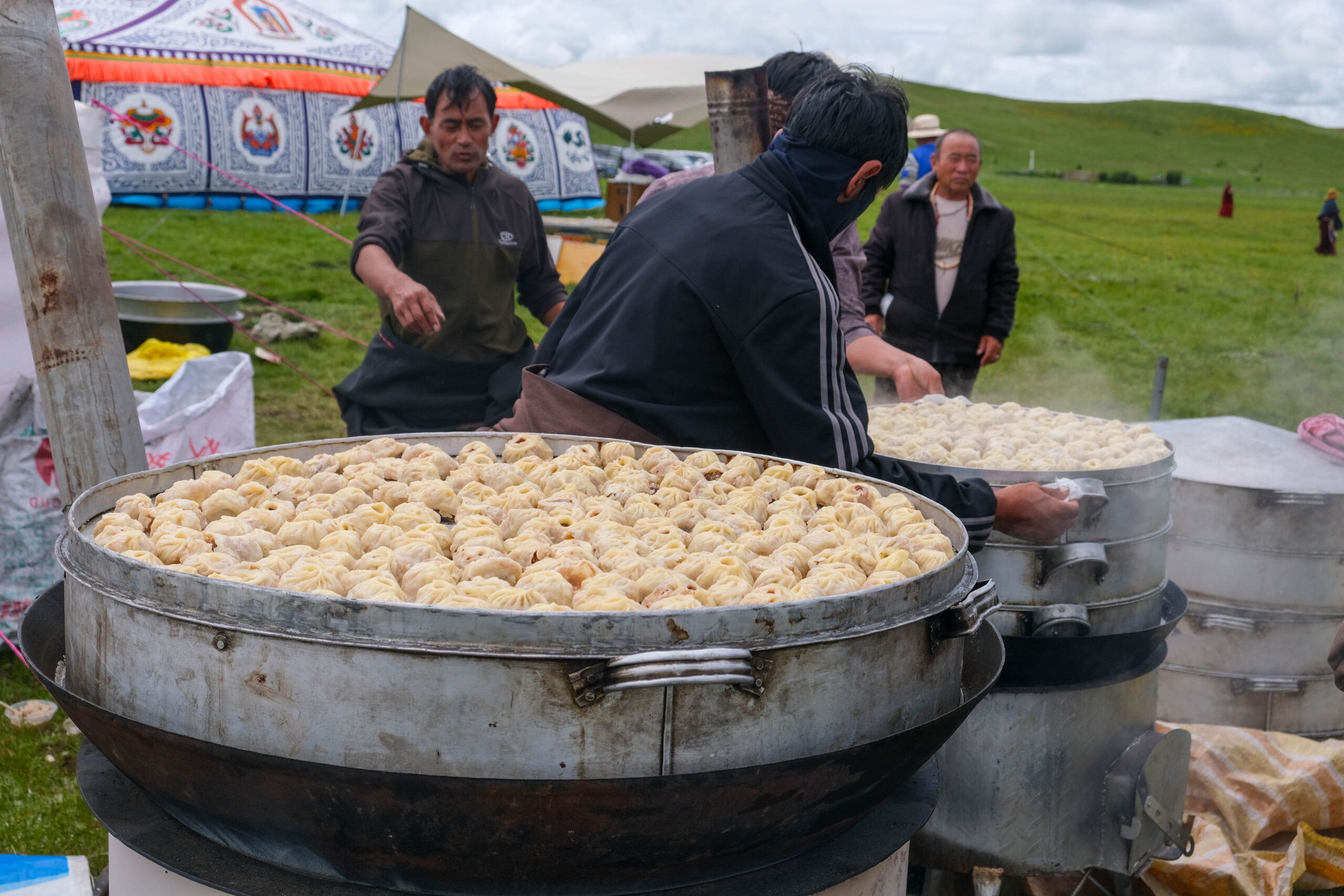
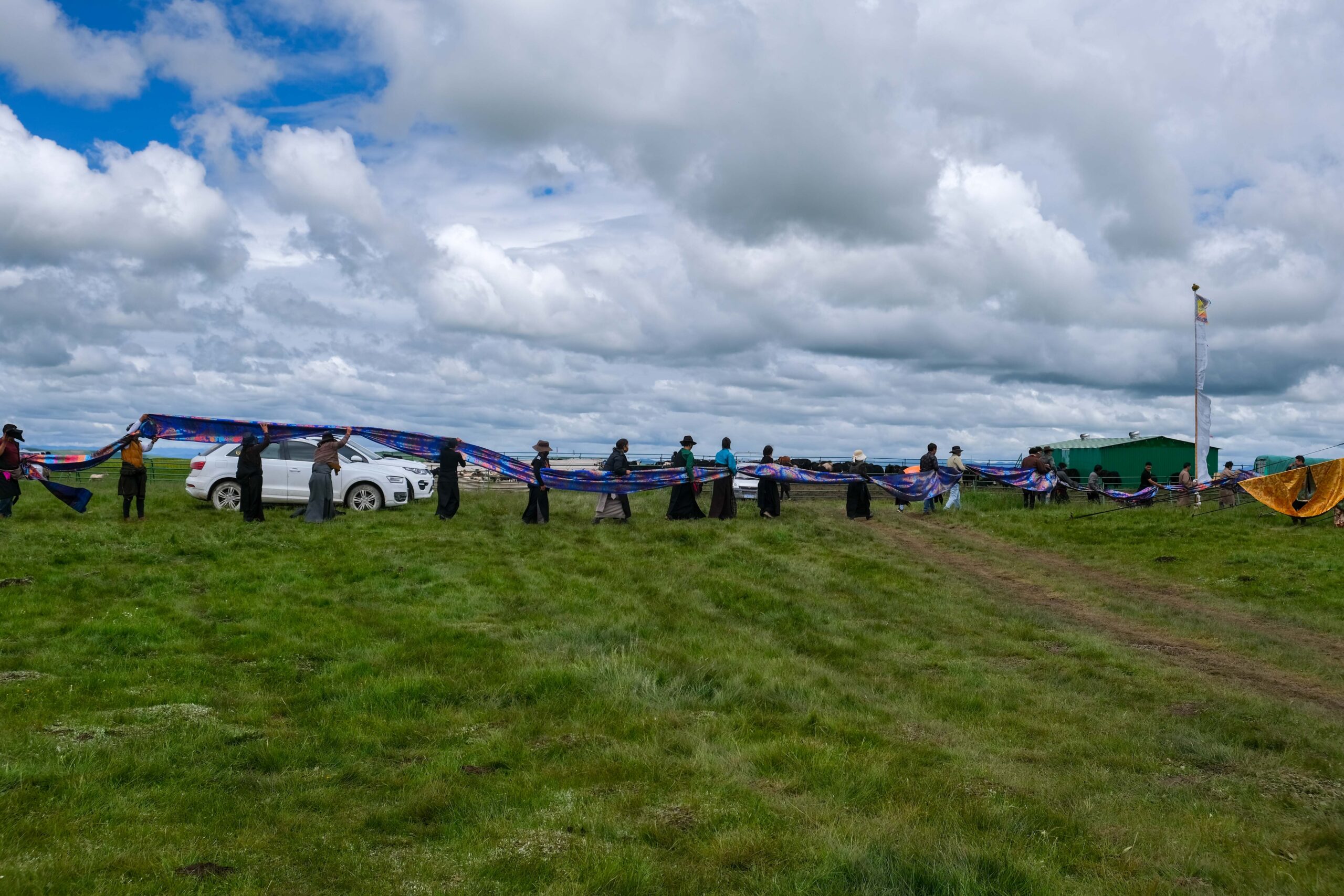
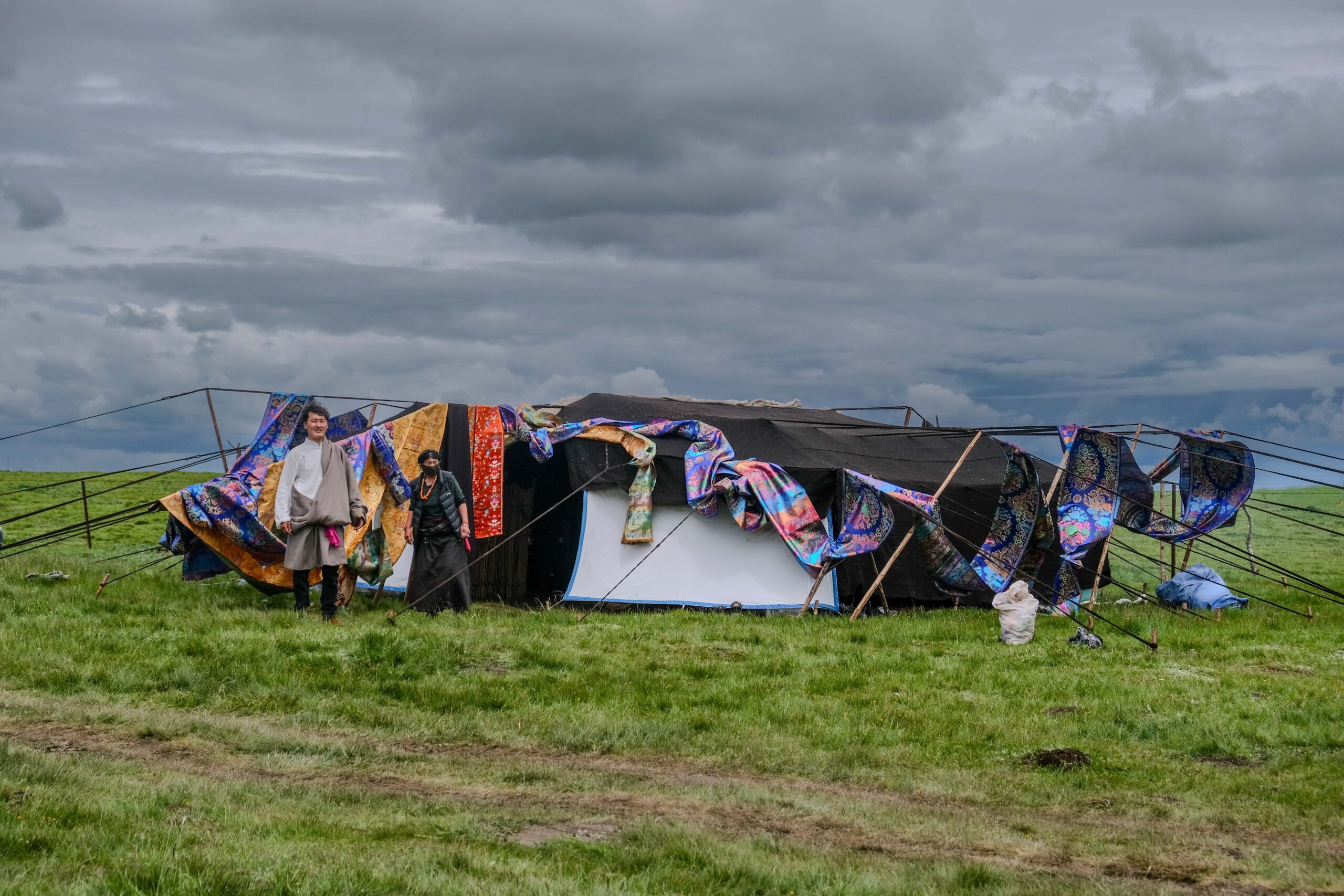
We stayed behind after the wedding for two more days. We had picnic and enjoyed the nice weather with the bride and groom’s family. Kin took family photos and set up a private photo collection on our website for them. We are very grateful to be a part of this blissful occasion and share their joy.
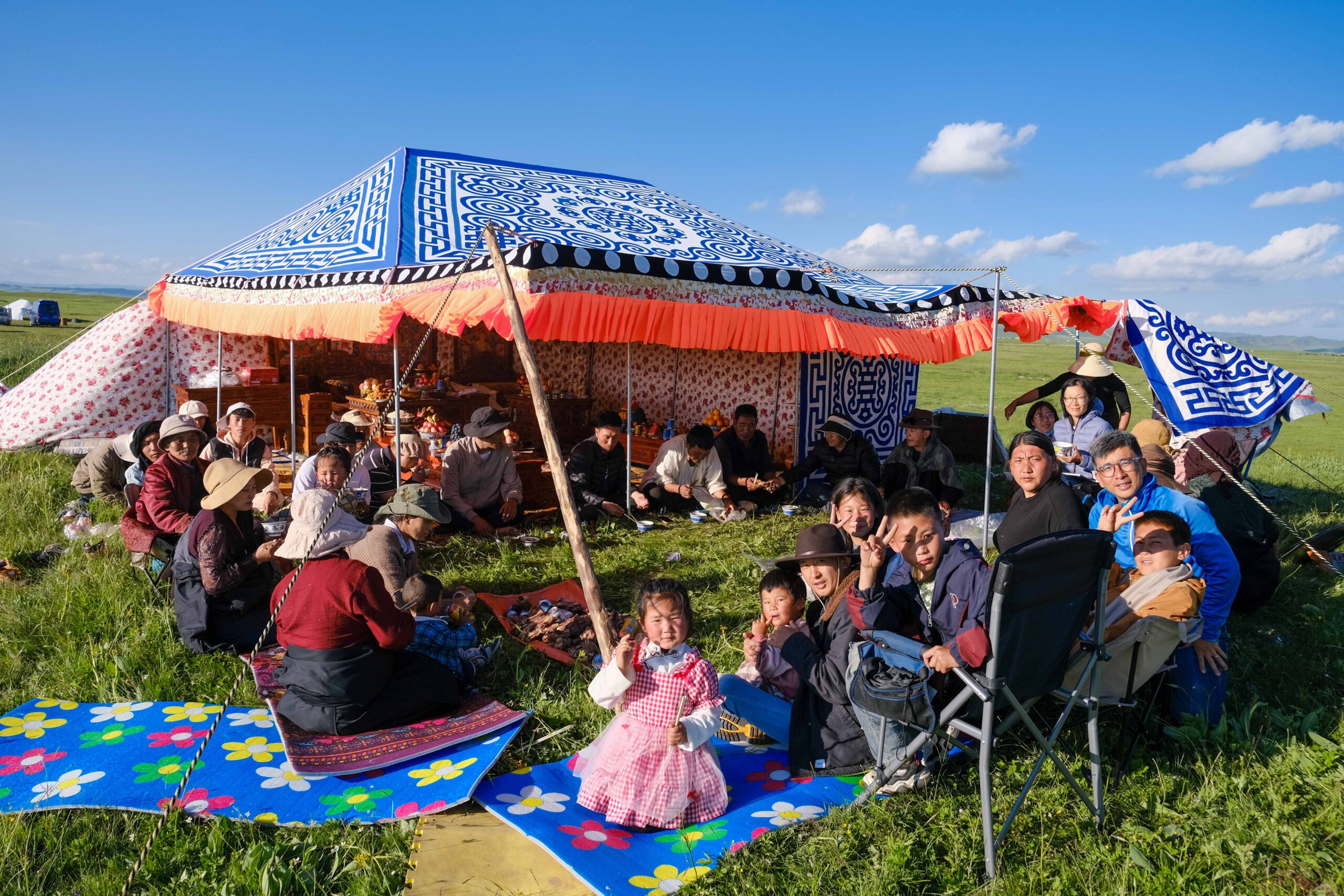
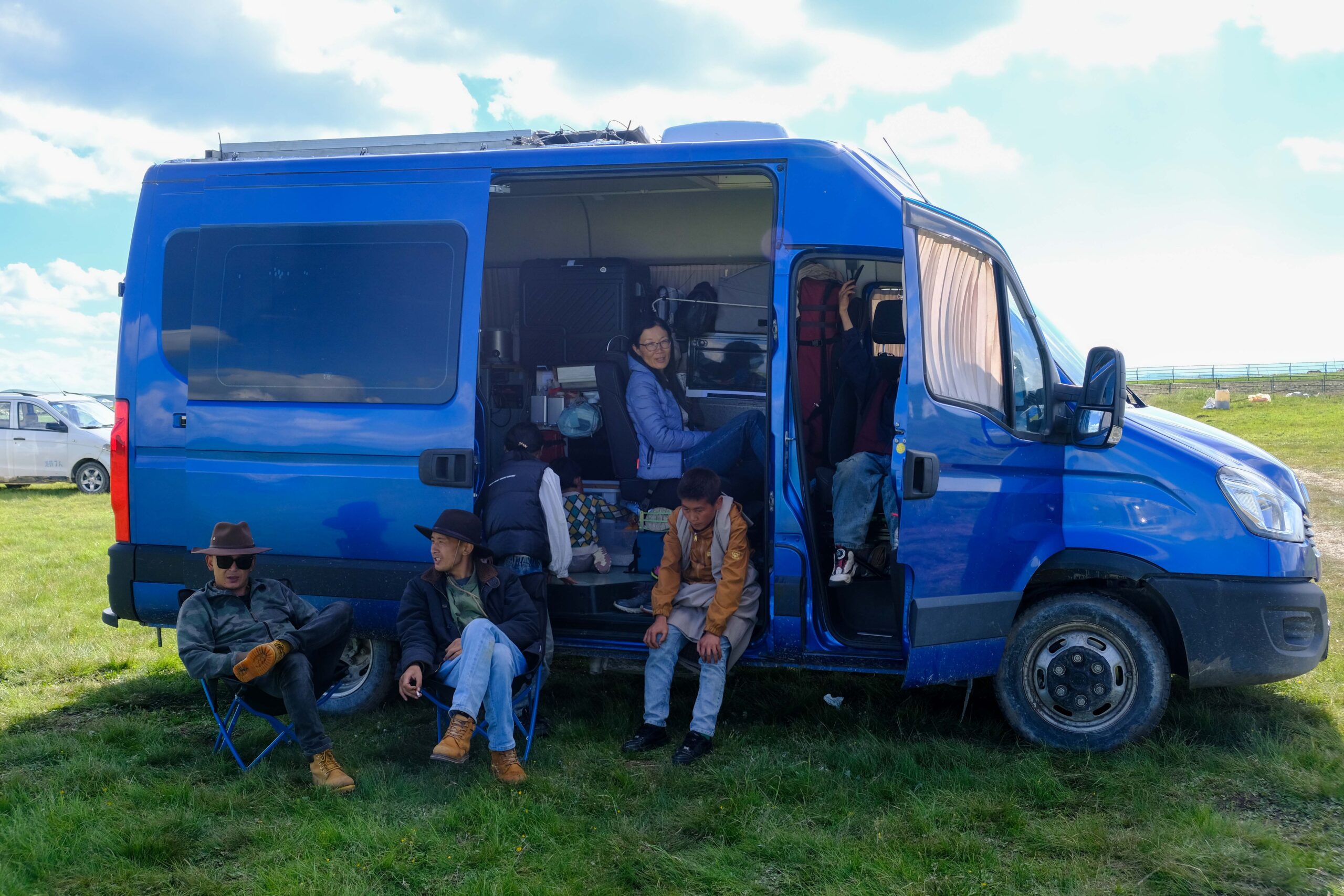
As I said before, life in the grassland is labour intensive and all about helping each other. While the wedding took days and many people to prepare, the dismantling and clearing up also took much manpower and time. Just the dismantling and folding of the tents alone took over ten people to accomplish. We helped pack the leftover drinks and load stuff to the trucks. Children were tasked with trash picking.
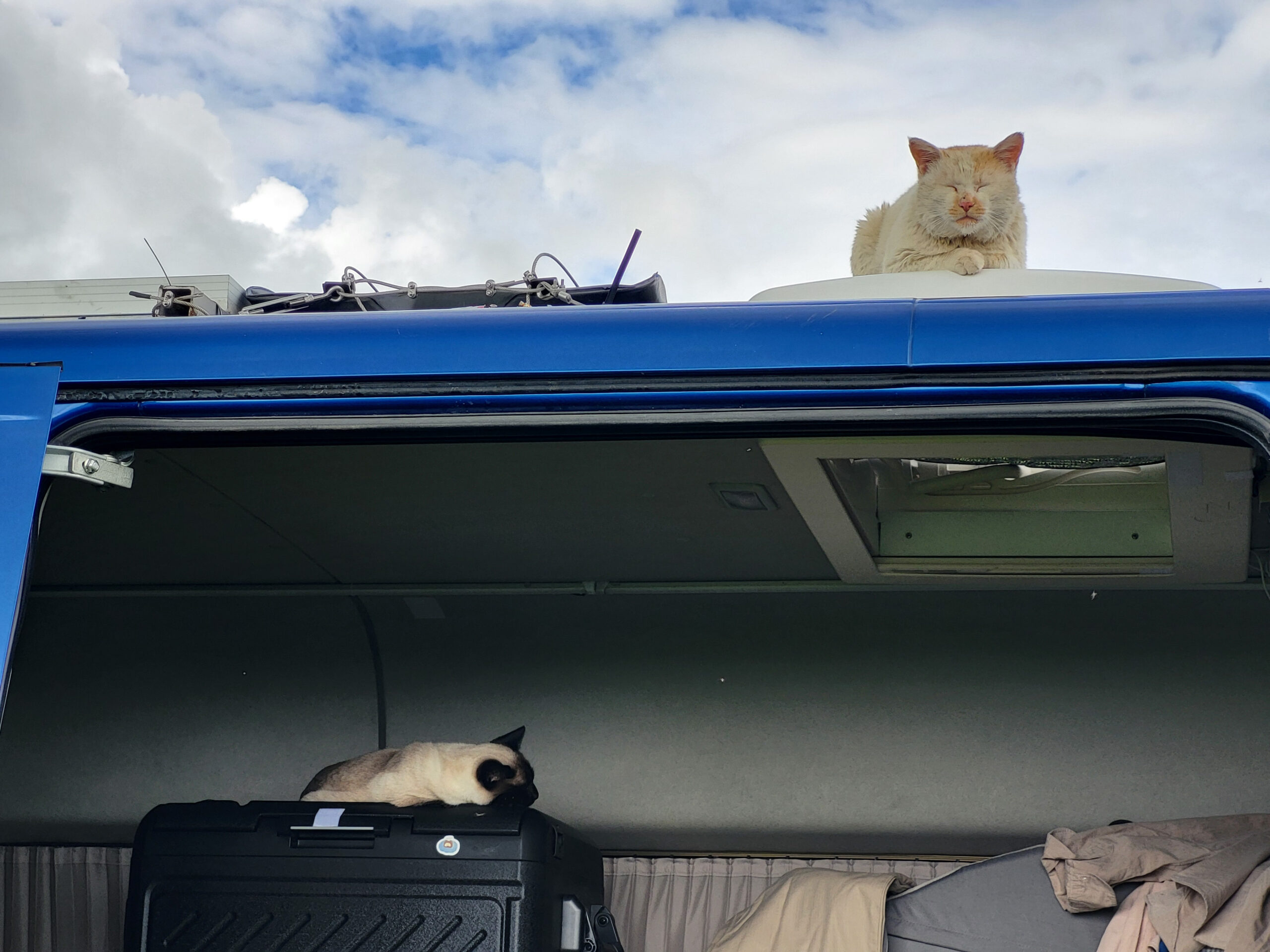
We returned to Xiaman afterward and spent more time with Zhuoma’s parents. I was quite surprised when her mother suggested us to cook dinner. I made spaghetti bolognese with minced yak meat and arrabbiata sauce. Surprisingly, they liked our spaghetti and cleaned the plate.
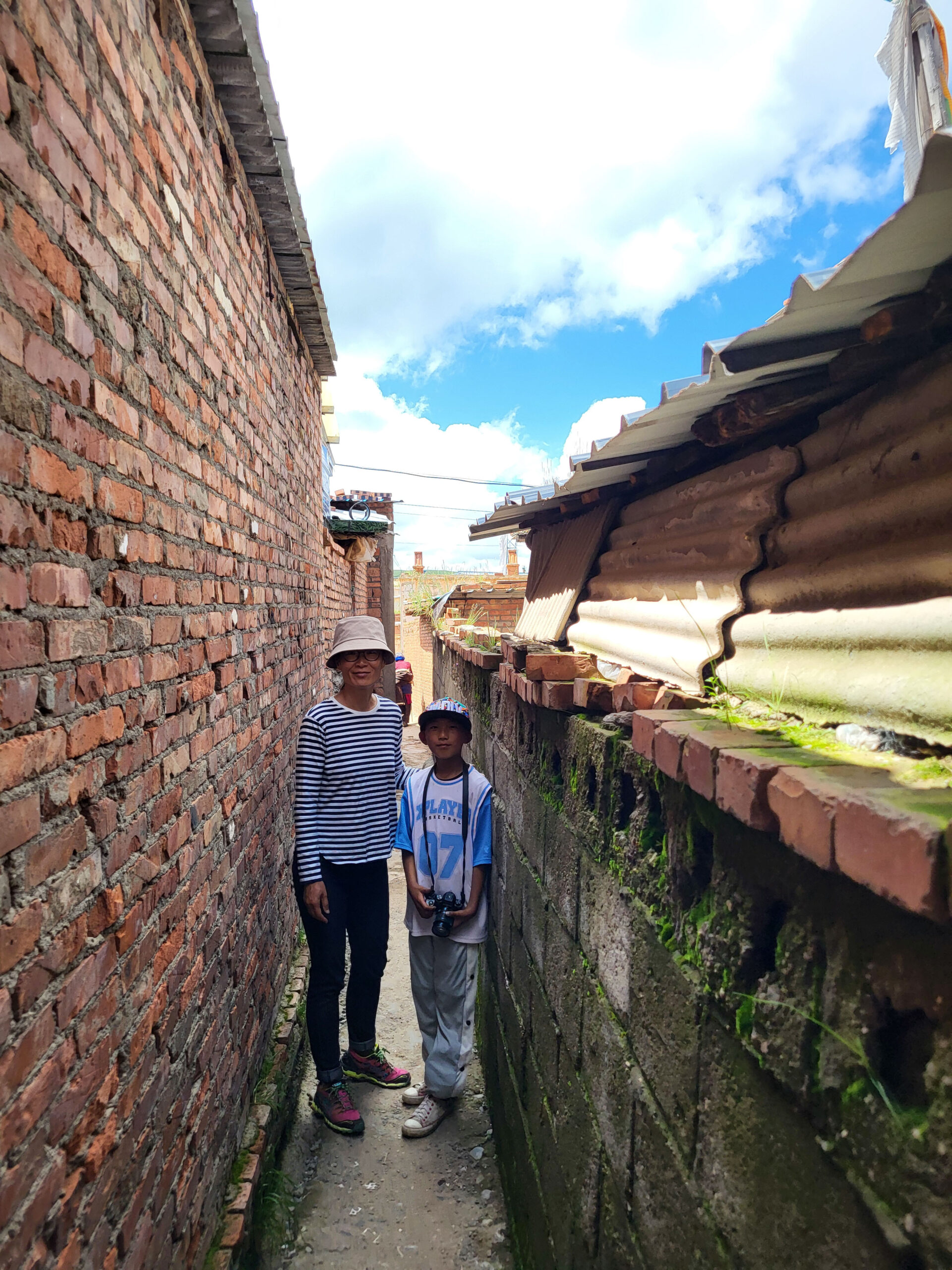
Zhuoma’s father invited us to come again and stay at his other house by the Yellow River where he meditates. Imagine offering your house to someone whom you have known only for a few days. I am just in awe of his kindness and generosity. When Kin said that we would come back to see them next year, Zhuoma’s father reminded him that he has to keep his promise.

We cherished every moment in the grassland. Not only did we get a chance to see up close how the nomads live harmoniously with nature, we also learn about the difficulties they face in practicing their faith and preserving their culture in face of modern advancement. I admire their devotion to religion and family. And most of all, I was moved by their kindness to let us into their homes.
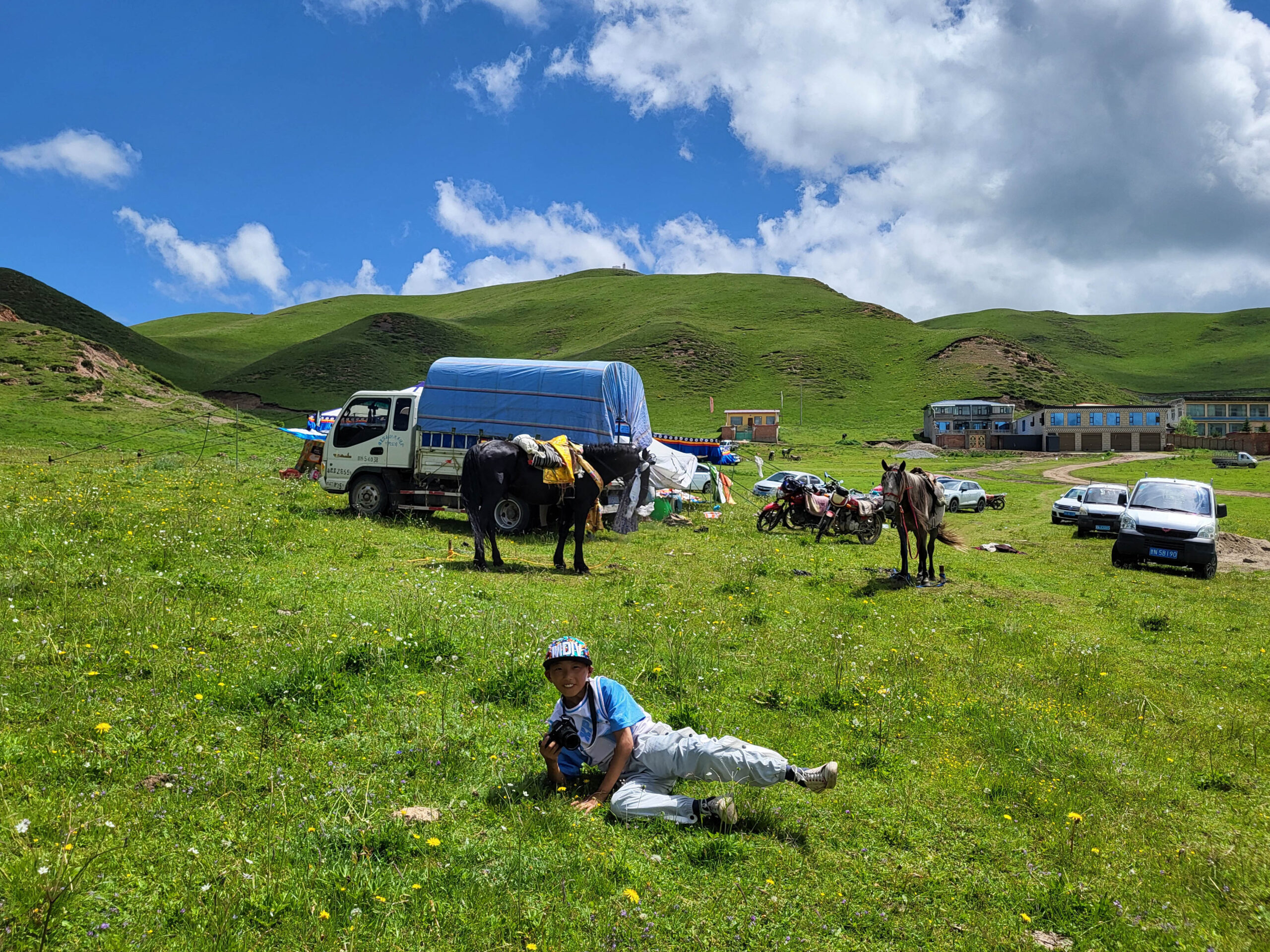
Whether we were with Ajia, talking to Zhuoma’s father or hanging out with his grandson, we felt pureness and positivity around them. We talked to various young people who shared with us their experience. Life in the high altitude grassland is not easy but they embrace and accept it as it is. They truly live in the moment. It made me reflect my own limitations and inadequacy and how we take things for granted and always wanting more.
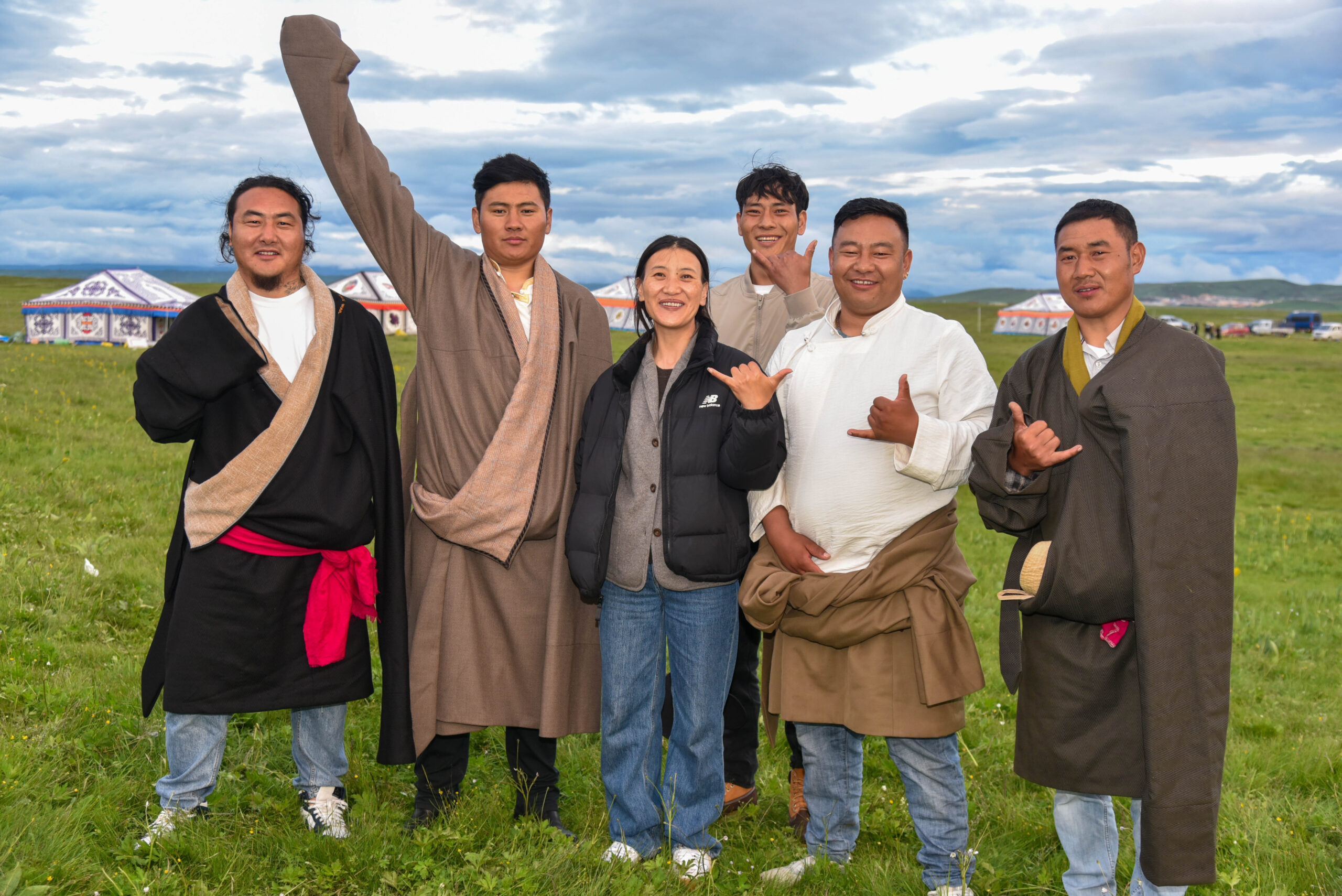
Maybe we are too preoccupied with finding happiness through material means or too obsessed in searching for the meaning of life and happiness that we can’t see that it’s staring right in our face. We no longer know how to appreciate and accept life as it is. Maybe that’s why we are lost and unhappy.
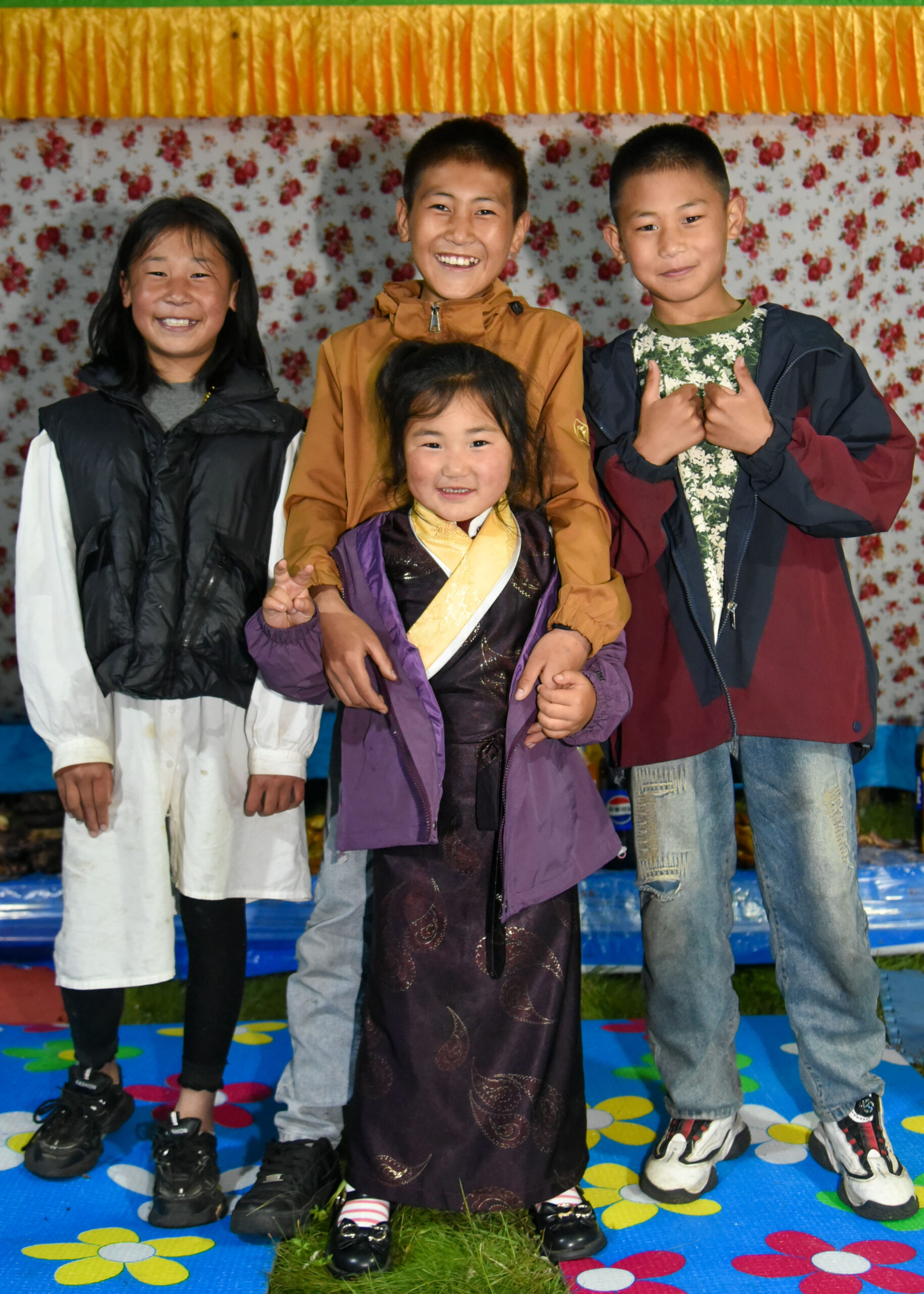
After two weeks unreal experience, we bid goodbye to our beloved friends and drove eastward towards Lanzhou’s (蘭州). As we drove further away from the grassland and high altitude, we could feel the summer heat and soon were back to the reality of melting temperatures and sweat.
Until next time we meet again, we will think fondly of our Tibetan friends and our time with them! We wish them all the very best and a big thank you for making us feel so welcomed!
